- en العربية ar English en Español es Français fr हिन्दी hi Indonesian id Türkçe tr Uygur ug اردو ur

Fasting while Traveling: Permissible?
Publication : 24-11-2001
Views : 268664
If a person travels in Ramadan and he is fasting, is it better for him not to fast, or should he continue fasting?
Summary of answer
Contents Related
Fasting while traveling: Permissible?
Fasting or not fasting while traveling: which is better.
Praise be to Allah.
The four Imams and the majority of the Sahabah and Tabi’in were of the view that fasting whilst traveling is permissible and is correct and valid. If the traveler fasts, it counts and he does not have to make it up. (Al-Mawsu’ah al-Fiqhiyyah, vol. 28, p. 73)
As to what is better, that depends:
1- If fasting and not fasting are the same, in the sense that fasting does not affect him, then in this case fasting is better, because of the following evidence:
- Abu’l-Darda’ (may Allah be pleased with him) said: “We went out with the Messenger of Allah (peace and blessings of Allah be upon him) [on a journey] during the month of Ramadan when it was intensely hot, until one of us would put his hand on his head because of the intense heat, and no one among us was fasting apart from the Messenger of Allah (peace and blessings of Allah be upon him) and ‘Abd-Allah ibn Rawahah.” (Narrated by al-Bukhari, 1945; Muslim, no. 1122)
- Fasting while traveling means that one fulfills one's duty more quickly, because making it up later means delaying it, but fasting in Ramadan means doing it sooner.
- It is usually easier for the one who has this duty, because fasting and breaking the fast with the people is easier than starting to fast all over again.
- It makes the most of a blessed time, namely Ramadan, for Ramadan is better than other times, because it is the time when fasting is obligatory. Based on this evidence the view of al-Shafi`i, which is that fasting is better in the case of one for whom fasting and not fasting are the same, is most likely to be correct.
2- If not fasting is easier for him, then in this case we say that not fasting (when traveling ) is better. If something will give him hardship, then in his case fasting becomes makruh, because doing something that causes hardship when there is a concession indicates that one is spurning a concession granted by Allah.
3- If it causes unbearable difficulty, then in this case it becomes haram for him to fast. The evidence for that is the report narrated by Muslim from Jabir ibn ‘Abd-Allah (may Allah be pleased with them), that the Messenger of Allah (peace and blessings of Allah be upon him) went out to Makkah in the year of the Conquest in Ramadan, and fasted until he reached Kura’ al-Ghamim. The people were fasting, but he called for a cup of water and lifted it up so that the people could see it, then he drank it. After that, he was told that some of the people had continued to fast. He said, “Those are the disobedient, those are the disobedient.” According to another report, he was told, “The people are finding it hard to fast, and they are waiting to see what you will do.” So he called for a cup of water after ‘Asr. (1114) So he described those who fasted even though it was very difficult as being disobedient. (Al-Sharh al-Mumti’ by Shaykh Muhammad ibn ‘Uthaymin (may Allah have mercy on him), vol. 6, p. 355).
Al-Nawawi and al-Kamal ibn al-Humam said:
“The ahadith which indicate that it is better not to fast are to be interpreted as referring to those who will be harmed by fasting; in some of them this is clearly stated, so they must be interpreted in this manner, so as to reconcile between the ahadith. That is better than neglecting some of them or claiming that they have been abrogated, without definitive evidence to that effect. In the case of those for whom fasting and not fasting are the same, they quoted as evidence the hadith of ‘Aishah (may Allah be pleased with her), that Hamzah ibn ‘Amr al-Aslami (may Allah be pleased with him) said to the Prophet (peace and blessings of Allah be upon him): “Should I fast whilst traveling ?” – and he used to fast a lot. He (the Prophet (peace and blessings of Allah be upon him)) said: “if you want to, then fast; if you don’t want to, then do not fast.” (Agreed upon)
And Allah knows best.
Was this answer helpful? No Yes
Source: Al-Mawsoo’ah al-Fiqhiyyah, vol. 28, p. 73
Similar Topics
When a Traveler By Plane Breaks the Fast
When Is It Forbidden for a Traveller to Break the Fast?
Travelling in order to avoid fasting?
Fasting of Those Always Travelling
share Question
You can ask your question on the website via this link: https://islamqa.info/en/ask
Log in Create an account
Password should contain small, capital letter and at least 8 characters long
Can't log in to your account?
If you do not have an account, you can click the button below to create one
If you have an account, log in
Create new account Log in
Reset Username or Password
Send feedback.
The Official Website of the Office of His Eminence Al-Sayyid Ali Al-Husseini Al-Sistani
- Islamic Laws
- Hajj Rituals
- Send Question
- Social Services
Books » Islamic Laws
Laws of fasting for a traveller.
Ramadan Fasting
By Georg Rehberger
During Ramadan , Muslims fast from sunrise to sunset. There are strict rules governing the Ramadan fast—but there are exceptions.
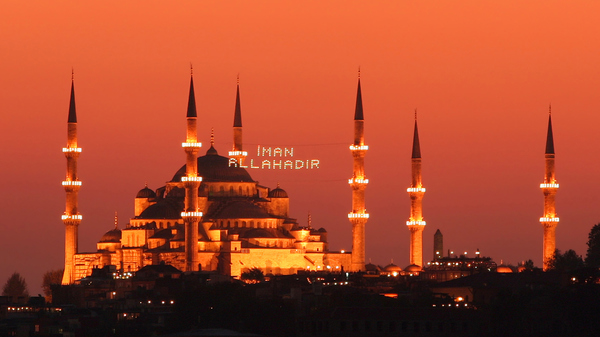
The Fatih Mosque in Istanbul is illuminated during Ramadan fasting; the message says “faith is present” in Arabic.
© iStockphoto.com/anilakduygu
Why Are Muslims Fasting?
During the holy month of Ramadan , Muslims fast for 30 days until the day of Eid al-Fitr . Fasting is considered one of the Five Pillars of Islam , obligatory acts of worship for every Muslim. The other pillars are: testifying to God and the Prophet ( shahada ), praying ( salat ), giving money to the poor ( zakah ), and making the pilgrimage to the sacred Arabic city of Mecca ( hajj ).
When does Ramadan start this year?
Muslim holidays
When Should Muslims Fast?
Muslims fast from dawn until dusk . According to the Quran, dawn is the time when “the white thread of dawn appears to you distinct from its black thread.” The fasting ends when “the night appears” (Quran, verse 187).
Sunni Muslims generally break the fast as soon as the disk of the Sun has sunk below the horizon, even when there is still light in the sky. Shia Muslims generally wait until it gets completely dark before they break the fast.
Sunrise and sunset times for your location
Meals During Ramadan
During the fasting period of Ramadan, Muslims traditionally take two fixed meals: A morning meal called Sahur , usually eaten half an hour before dawn; and Iftar, the fast-breaking meal immediately after sunset. Following the tradition of the Prophet Muhammad, Muslims break the fast with eating dates.
During the night, after the fasting hours, Muslims can eat snacks if they want. Drinking water at night is important, especially during the summer months, and is encouraged by Islamic authorities.
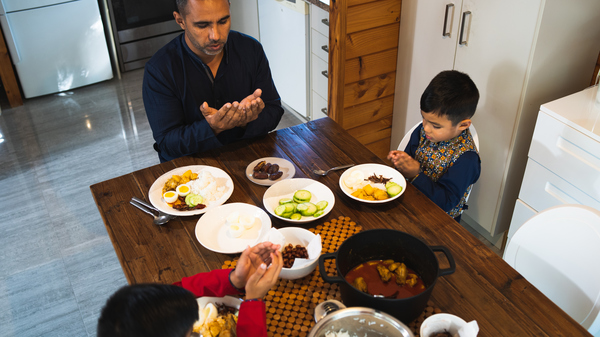
A Muslim family breaks the fast with the traditional meal after sunset, the Iftar .
© iStockphoto.com/nazar_ab
Ramadan Fasting: What Is Allowed, What Is Forbidden?
Islamic holy scripture and law is quite particular about which activities are allowed during Ramadan and which are prohibited. The following list applies to the time from dawn until dusk:
Exceptions from Fasting
Every adult Muslim who is sane and healthy has to fast during Ramadan according to Islamic tradition. These are the exceptions:
- If a Muslim is sick during Ramadan, he or she can skip the fasting. However, they have to fast later, when they are healthy again, to complete the days they missed.
- The same is true for pregnant and menstruating women , and women who are nursing. They should postpone fasting and perform it later.
- People with a chronic illness and people who are mentally unfit for fasting may also skip Ramadan. However, they must pay the fidyah instead—they give a day’s meal to a needy person for each day they did not fast themselves.
- The last exception is travel : Muslims who are traveling during Ramadan can skip fasting if they travel for a good cause and if they travel at least 48 miles (80 km) away from their city of residence. Travelers have to make up the missed days after their travel.
Ramadan Fasting in the Arctic
Muslims have to fast during daylight hours. But what if the Sun never sets? Muslim communities in the far north of Norway, Sweden, and Canada, have some experience with this. Every year, they live through many months where the Sun never sinks below the horizon .
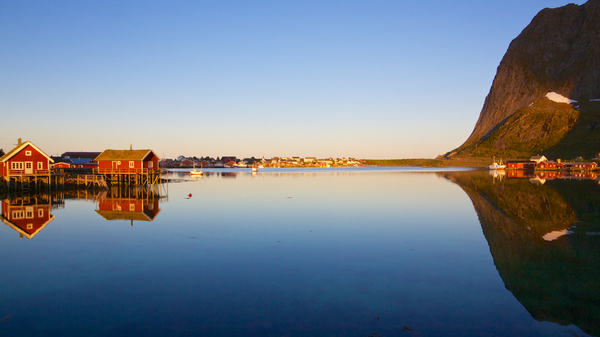
The Midnight Sun over northern Norway never sets. What does this mean for Ramadan fasting?
©bigstockphoto.com/harvepino
How are these communities dealing with the Ramadan rules? Since every Muslim community can make their own rules about fasting, they have come up with different strategies :
1. Use the Last Clear Sunset Time
Sweden’s Islamic Association, for example, recommends following the last clear sunset time—the last time the Sun clearly sank below the horizon—and use this as a guideline during Ramadan.
2. Follow Mecca Times
The Muslim community in Tromsø in northern Norway followed the sunrise and sunset times of Mecca . As the Sun rose at 05:00 (5 am) in Mecca, the Norwegian community started fasting as well. Following the fasting times from a religious center of Islam like Saudi Arabia or Turkey is not uncommon for Muslim communities.
3. Follow the Nearest Community
The community in Iqaluit , Canada, found a third solution: They followed the nearest Muslim community outside the Arctic circle and did not experience a Midnight Sun. In their case, this was the Muslim community in Ottawa .
- Al-Khoei Foundation, New York
- Prayer Timings
- Video Archives

- Grand Ayatollah Al-Khoei
- The-Foundation
- Biography Grand Ayatullah Sayyid Ali Husaini Sistani
- Community News
- What we do?
- Make a Donation
- Donation History
- Recurring Donations
- Edit Donor Profile
- Ask a Fiqh Question
- Questions and Answers Archive
- Hajj and Ziarah
- Counselling
- A Code of Practice For Muslims in the West
- Jurisprudential questions
- Al-Iman School
- Al-Zahra Schools
- Al Houda School
- Al Sadiq School
- Jamiatu Al Kauthar
- Latest fatwas
- Login / Register
Assalamu ‘Alaykom Wa Rahmetallahi Wa Barakatu. I am a university student who is healthy and has been fasting for Ramadan with no issues. Before Ramadan, I used to travel to visit my relatives who live about 60 kilometers away from me and stay with them over the weekend, but I do not have residence in that city nor do I have affiliation with it other than my relatives living there. I was planning on visiting my relatives after Dhuhr prayer to keep my fast for the day I’m traveling to them, but I am aware that I would not be able to fast the two days after (Saturday and Sunday) since I would still be in a city other than my residence for those two days.
My intention is to just visit my family for those 3 days. I would prefer to fast the whole month of Ramadan, but I am aware that in this case, I can’t due to the travel. My question is if I travel, would I just have to make up the two days that it would be impermissible for me to fast (due to travel)? Or would I need to make up fasts of two months for each missed day of fasting in Ramadan, give food to sixty poor people, or free one slave after Ramadan (Sayed Ali al-Sistani Ruling 1679) since I am healthy and able to fast? I do not want to purposefully evade any days of fasting during Ramadan, my intention is just to visit my relatives. What would be the ruling in this case? Shukran wa Assalamu ‘Alaykom.
أعوذ بالله من الشيطان الرجيم
بِسْمِ ٱللَّٰهِ ٱلرَّحْمَٰنِ ٱلرَّحِيمِ
As Salaamu Alaikum Wa Rahmatullahi Wa Barakatuh,
Based on your specific question and information provided.
From the Jurisprudence Perspective:
Travelling during the month of Ramadan is not forbidden. However, travelling in order to escape fasting is disapproved. Similarly, travelling in general in the month of Ramadan is disapproved except for ʿumrah(1) or because of necessity.
والله العالم (and Allah(awj) Knows best)
If you have further questions kindly contact us at (718) 297-6520 Ext 113 Monday to Saturday between 11:AM – 3:00 PM.
Please login or Register to submit your answer
Username or Email Address
Remember Me
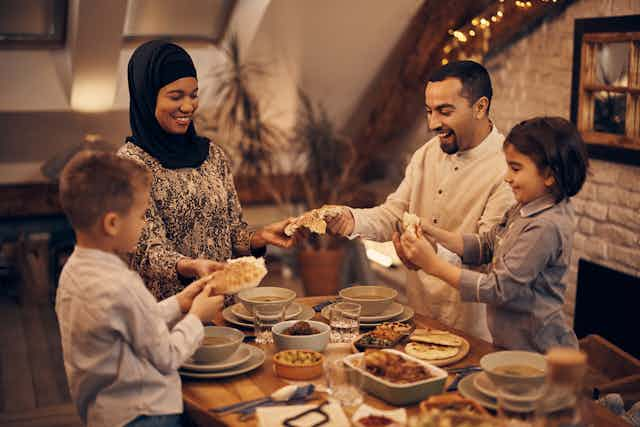
Explainer: what is Ramadan and why does it require Muslims to fast?
Associate Professor in Islamic Studies, Director of The Centre for Islamic Studies and Civilisation and Executive Member of Public and Contextual Theology, Charles Sturt University
Disclosure statement
Mehmet Ozalp is affiliated with Islamic Sciences and Research Academy.
Charles Sturt University provides funding as a member of The Conversation AU.
View all partners
Intermittent fasting is now becoming popular, with many promised health benefits. But Muslims have been practising fasting in the lunar month of Ramadan for centuries.
The Ramadan for 2022 will start on Saturday April 2 and go for about 30 days. It is then followed by the three-day celebration of Eid.
Significance of Ramadan in Islamic history
Prior to becoming a messenger of God, Muhammad used to withdraw to the Hira mountain top cave. He would meditate in solitude, away from the polytheistic culture of tribal Mecca for the whole month of Ramadan. We are not sure if this retreat involved fasting at the time.
In 610, when he was 40, he again went to the same mountain top to meditate. Several weeks into the retreat, he experienced an angelic form appearing before him, commanding him to read. He replied he did not know how to read. The angelic form squeezed him tight and repeated the command to read. This continued three times, after which the first five verses of the holy Qur’an was revealed:
Read in the name of your Lord who created humans from a piece of flesh. Read, for your Lord is Most Generous. Who taught humans with the pen. Who taught humans what they do not know.
Muhammad still was not able to read in a conventional way, but he understood that he was being asked to read the book of the universe and learn from it, and also understand that it points to its creator.
This incident marked the beginning of Islam, revelation of the Qur’an and the prophetic mission of Prophet Muhammad.
In 624, when Muslims migrated to Medina to escape persecution, the month of Ramadan was declared holy by virtue of the start of the mission of the Prophet and revelation of the Qur'an. Fasting was instituted in this month as one of the five pillars of Islam as a way for believers to show their thanks to God and reflect on the teachings of the Qur'an and its importance for believers.

Who observes Ramadan fasting?
The Ramadan fasting involves stopping eating, drinking and sexual intercourse from dawn to sunset. Practitioners can engage in all these acts once fasting is broken and restart fasting the next dawn. The cycle continues for a whole month.
Ramadan fasting is one of the most observed of all the pillars of Islam, with 70-80% of Muslims practising it. It is obligatory for all Muslims, men and women, from the age of puberty. Parents encourage their children to fast for half a day from the age of ten to condition them to fasting.
Read more: Millions of Muslims prepare to perform the hajj amid calls for a boycott
There are exemptions. Travellers, elderly, sick, pregnant and breastfeeding mothers are exempt from fasting on the condition they make up missing days at a suitable time after Ramadan. The elderly and chronically ill compensate for days not fasted by making a small donation to charity for each day, if they can afford it.
Since fasting is from dawn to sunset, the duration of fasting time changes depending on the season and where a Muslim is located in the world. Near polar regions, fasting can be almost 22 hours in summer or just a few hours in winter.
Spiritual significance and benefits of Ramadan fasting
What may seem to some to be a self-inflicted ordeal has profound meaning for human beings and God, and their reciprocal relationship. God exhibits the perfection of lordship, grace and mercy by making the surface of this Earth a table of blessing, and placing all kinds of sustenance on that table for every creature to enjoy.
In Ramadan, believers show a collective act of worship in the presence of the mighty and universal Mercy as they wait for the divine invitation to the table of blessings at the time of breaking the fast. As the Earth revolves around its axis, the jubilant timeframe is repeated in a continuous manner for the whole month.
Many people forget the fact God is the source of all sustenance. While they readily thank agents of delivery, they forget to remember and thank God as the one who ultimately meets all their needs. God expects the price of thanksgiving for the sustenance he has provided.
True thanksgiving is to know that all sustenance comes directly from God, to acknowledge its value and to feel our own need and dependence on that sustenance.
A fasting person physically feels the value of, and their need for, basic sustenance when they experience the pangs of hunger and thirst. Since a believer fasts for the sake of God, they acknowledge the sustenance, which may be taken for granted, actually comes from God. Therefore, fasting in the Islamic tradition is the best way to show a true and sincere thanksgiving.

Fasting tames the desires. The constant exercise of willpower not to eat, drink or have sexual relations sends a strong message it is the human will, hence the spirit, that is in control.
Fasting is not just about staying hungry or thirsty, it is also to struggle to contain other harmful behaviours. Prophet Muhammad remarked:
Whoever doesn’t give up lying and acting on lies during fasting, then God has no need for him to give up food and drink.
Therefore, the fundamental spiritual benefit of fasting is to exercise the will-power and attain self-control, essential for success in every part of life.
Read more: How coronavirus challenges Muslims' faith and changes their lives
Eid celebrations at the end of Ramadan
Fasting has other personal and social benefits. Through fasting, the rich know what it means to be hungry. Hence, the rich will be more inclined to give charity when they fast. The annual Islamic alms ( zakat ) are usually paid in Ramadan.
Muslims often invite friends and family members to join in the celebration of the break-fast dinners ( iftar ). The rich organise dinners for the poor.
In the past few decades, Muslim minorities in western countries have started to invite their non-Muslim friends to iftar dinners. Muslim organisations have annual iftar dinners for their associates and supporters.
In Australia, the NSW premier, for example, has been holding iftar dinners for members of the Muslim community and other faith leaders since 2004. Presidents of the US have also held iftar dinners in the White House.
Ramadan has become a cultural event for everyone.
Ramadan culminates in a three-day celebration ( Eid al-Fitr ), where Muslims offer a special morning prayer, then visit family and friends. Charity, called fitr , is given to the poor to ensure no one is left out of the celebrations and the joy of success that comes with fasting.
- Eid al-Fitr
- Prophet Mohammed

Head, School of Psychology

Postdoctoral Research Fellowship

Health Safety and Wellbeing Advisor

Social Media Producer

Dean (Head of School), Indigenous Knowledges
Top tips for traveling in Muslim countries during Ramadan

Mar 4, 2024 • 4 min read

Travelers visiting Muslim-majority countries during Ramadan should expect to be welcomed © Twenty47studio / Getty Images
Ramadan Kareem fellow travelers!
Traveling to places where Ramadan is observed can be an enriching and interesting experience, especially when you know what to expect. Here's our guide to visiting Muslim-majority countries during the month of Ramadan.
What is Ramadan and why do people observe it?
Ramadan is a month where Muslim people are encouraged to become more spiritual by focusing on charity, prayers and reading the Quran (the holy book of Islam). To focus on the spiritual side, people observing Ramadan must abstain from food and drink from sunrise to sunset. They also abstain from sex and smoking during the period of fasting, and reject anything that can break their fast, such as cursing and any harmful behavior. Fasting is one of the pillars of Islam so it is obligatory for practicing Muslims that are of age to observe it, with some exceptions .

How do I know if I am traveling during Ramadan?
Ramadan is a month in the Islamic lunar calendar. Dates shift by about 11 days each year, so the date that Ramadan starts is different each year on the Gregorian calendar. An easy way to know whether you will be traveling during Ramadan is to do a quick online search of "Ramadan" plus the year.
Do I have to fast as a traveler visiting a Muslim country?
Locals will not expect you to fast, but some countries have laws that do not allow eating in public places during Ramadan. Remember that smoking will also not be allowed in public either. It is best to do some research on the laws of the country you are visiting during Ramadan. It can also differ from city to city, for example, Dubai is a very heavily touristed city with a large population of expats, so the laws there allow public eating during Ramadan and the restaurants are open during the day. However, the rest of the cities in the UAE do not allow public eating during the day. If you're visiting the Maldives , check the meal schedule with your hotel, just in case there are any changes. If you're planning to eat at a restaurant at the time of iftar (the breaking of the fast after sundown), make a reservation, as pre-booking is sometimes required during Ramadan.
Does everything close in the day during the month of Ramadan?
Things can slow down a bit in the daytime during Ramadan and opening hours usually change to ensure that people can break their fast when it's time for iftar . In countries where public eating is not allowed during the day, restaurants do not open until noon to begin preparing for iftar , and during this time you can order food to takeaway. You won't be able to dine in until iftar time.
Tourist sites might have different opening and closing hours in some places, but in others, they will remain the same. Markets and shops usually close during iftar and then open again later in the evening. Some countries make sure that the opening and closing times of their tourist sites and businesses are updated during Ramadan to make it easier for visitors. Ask at your hotel or a local tour agency for more information.

How can I be culturally sensitive when traveling during Ramadan?
When traveling during Ramadan, it is culturally sensitive to abstain from eating, drinking and smoking in front of those who are fasting. If you're not able to do that, you can ask a person if it is okay for you to drink or eat in front of them. Dress modestly, which could mean different things depending on where you are. Clothing that covers shoulders and knees is recommended and, in some places, covering the legs entirely is more appropriate. Always avoid public displays of affection during Ramadan.
Greet locals with phrases like “Ramadan Mubarak” and “Ramadan Kareem”. These are general Arabic greetings meaning "have a blessed Ramadan" and "Ramadan is generous". If you're not in an Arabic-speaking country, ask what the Ramadan greeting is locally – people will be glad that you know it is Ramadan and you are making the effort to connect with them.
How can I experience Ramadan like a local?
If you are feeling adventurous you can try fasting for a day and breaking your fast with locals. In many countries, there will be collective iftars where you will find people in the streets gathering together to break their fast, and everyone is welcome to join.
In Egypt you can find long tables in the middle of roads in some neighborhoods for iftar . The neighbors gather their food and all go down to eat together and any guests are welcome. In northern Sudan , often the men break their fast together in the streets, and anyone who passes by during iftar time is invited to join them – they do not take no for an answer! In some countries, people also have Ramadan tents where they either give out iftars or host collective iftars , and everyone is welcome.
If you choose to travel in a Muslim-majority country during Ramadan, expect to be welcomed by the locals. It is a month of giving and generosity, so you will find that people are going the extra mile to offer a helping hand to each other and to visitors.
This article was first published Jun 27, 2014 and updated Mar 4, 2024.
Explore related stories

Destination Practicalities
Jun 21, 2024 • 8 min read
Experience world-class attractions, stunning desert landscapes, and an unforgettable blend of tradition and innovation in Dubai.

Apr 14, 2024 • 6 min read

Mar 26, 2024 • 8 min read

Mar 12, 2024 • 4 min read

Mar 8, 2024 • 9 min read
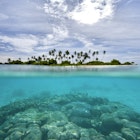
Mar 4, 2024 • 7 min read

Feb 27, 2024 • 5 min read

Feb 24, 2024 • 5 min read

Feb 22, 2024 • 5 min read

Feb 15, 2024 • 7 min read
يَٰٓأَيُّهَا ٱلَّذِينَ ءَامَنُواْ كُتِبَ عَلَيۡكُمُ ٱلصِّيَامُ كَمَا كُتِبَ عَلَى ٱلَّذِينَ مِن قَبۡلِكُمۡ لَعَلَّكُمۡ تَتَّقُونَ ١٨٣
Tip: try navigating with ctrl K
Maximize your Quran.com experience! Start your tour now:
Homepage features
Customize your settings
Enrich your Ayah reading experience
Personalized features

- 0115 911 7222
Explore Muslim Hands

The Fiqh of Fasting

The blessed month of Ramadan is here, alhamdulillah! With that in mind, we've put together an article presenting the basic rules of fasting. This includes: the definition of fasting, who needs to fast in Ramadan, who is exempt from fasting, what breaks our fast and what doesn't break our fast! Please note: this article is based on the Hanafi madhab .
What is the definition of fasting in Islam?
Fasting is 'to abstain from food, drink and marital relations from daybreak to sunset, with the intention of drawing near to Allah (swt)', according to Shaykh Haroon Hanif.
The above definition refers to an 'intention of drawing near to Allah', which makes a religious fast distinct from merely dieting or practicing intermittent fasting. But what, precisely, does it mean to intend something?
An intention is: the determination you feel in your heart to do something. Your intention doesn’t have to be verbally stated, although this is certainly preferable.
Practically speaking, it would be almost impossible to not have the intention to fast in the Hanafi school. A good way of understanding what makes 'an intention' is this: if a person asks you 'What are you doing?' and your reply is 'Fasting' - then you have clearly intended to fast and are now carrying out that intention!
The intention to fast must be made separately for each day of Ramadan. You can make the intention at any time from the Maghrib prayer of the previous night up to before the 'Islamic midday'. The Islamic midday is the midpoint between the start of the Fajr prayer and the start of the Maghrib prayer. For example, if Fajr starts at 5 AM and Maghrib starts at 5 PM, then the Islamic midday would be 11 AM.
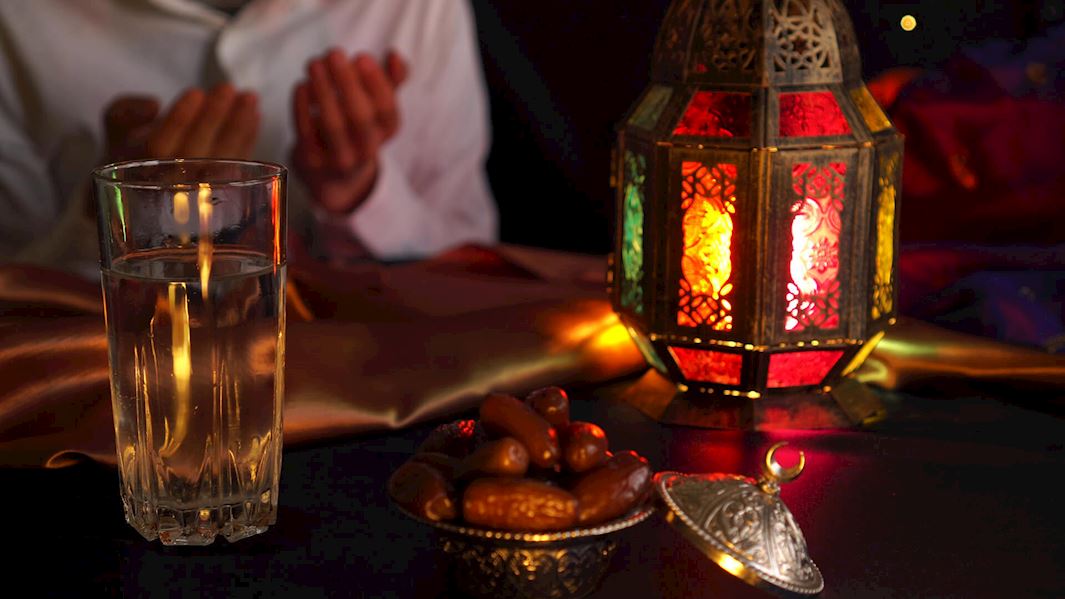
Who has to fast in Ramadan?
All adult Muslims of sound mind are required to fast in Ramadan. From the Islamic perspective, an adult is defined as follows:
- Islam is the way of the Fitrah (the natural, primordial way) and thus someone becomes an adult once they enter puberty.
- A male child becomes an adult when he experiences a wet dream or ejaculation.
- A female child becomes an adult when she experiences a wet dream or her first menstruation.
- If none of these have occurred for either the male or female by the age of 15 lunar years, they would automatically be considered adults and be obliged to fast.
Who is exempt from fasting in Ramadan?
The following Muslims are exempt from fasting in Ramadan.
A sick person:
Someone who is ill to the extent that it will seriously affect their health if they fasted. This is determined by clear manifest signs, the judgement of a practising Muslim doctor or by previous experience.
A traveller:
A traveller is defined as someone who intends to travel to a place which is longer than 48 miles away. He must also intend to stay there for less than 15 days, otherwise he would be considered a resident. It must be noted that a traveller is only excused from fasting in Ramadan if he begins his journey before the time of Fajr enters. If a person begins fasting a day in Ramadan and then travels, he is obliged to complete his fast.
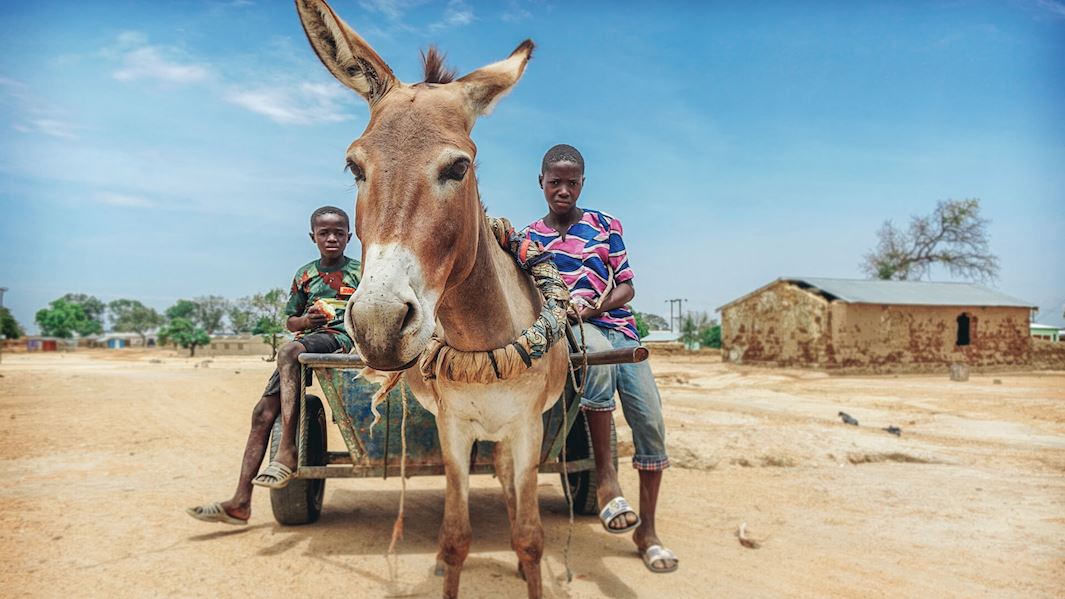
A frail elderly person:
This is someone who can’t fast due to it resulting in illness or an adverse effect on one’s health, as mentioned above (see the section on a sick person). A sick person would ordinarily be able to make up the missed fasts at a later date, whereas an elderly person often wouldn’t be able to due to the weakness that can come as we advance in age. They would thus have to give Fidyah for any fasts that were missed. According to Muslim Hands, this would roughly amount to £7 per missed fast.
A pregnant or breastfeeding woman:
The default ruling on pregnant women is that they are obliged to fast in Ramadan. However, if there is a danger to the health of the mother or unborn child, then of course they are exempted from fasting. The danger of fasting can be determined by a practising Muslim doctor, manifest signs or by previous experience.
When a child is being exclusively breastfed, the mother is exempt from fasting. Otherwise, the mother would be encouraged to fast as much as possible as long as it doesn’t affect the milk she will be feeding her child. For example, she would fast a day and then may have to miss a day if she feels that her milk is going to dry up. Once again, this judgement on whether to fast or not would be determined by manifest signs and previous experience.
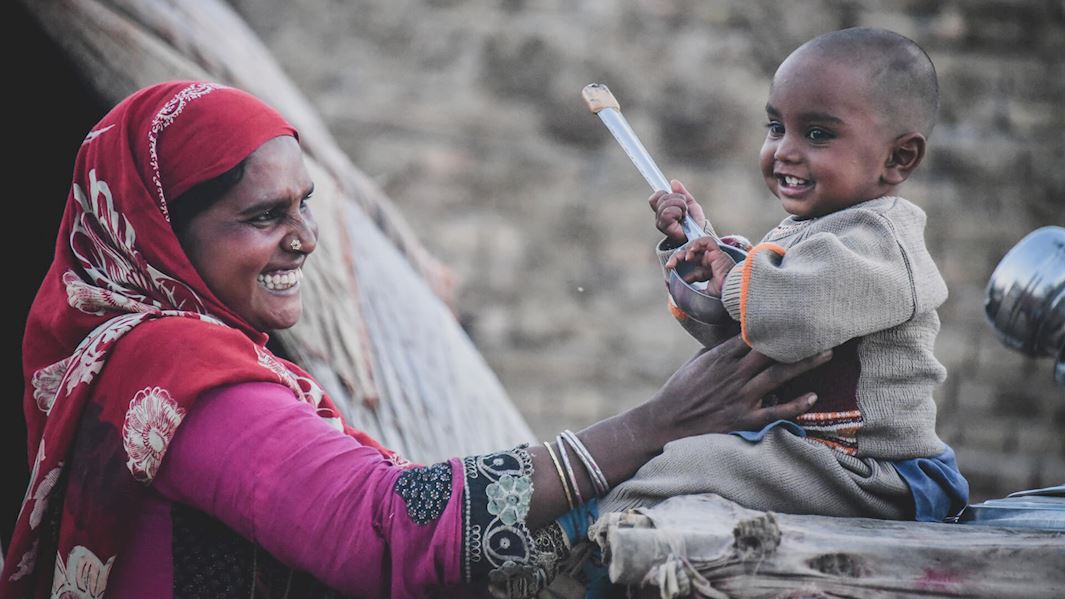
A woman experiencing menstruation or post-natal bleeding:
It is forbidden to fast while menstruating.
- If a woman’s period starts in Ramadan during the night (i.e. any time from the start of the Maghrib prayer to the start of the Fajr prayer), then she is forbidden from fasting the following day. She must continue to not fast for as long as she is menstruating.
- If a woman starts her period during the day, then her fast on that day would be nullified. She must make up that fast on a later date. Again, she must continue to not fast for as long as she is menstruating.
- If a woman's period ends at night time (i.e. from the start of Maghrib up to the start of Fajr), she must make ghusl (a ritual bath), and she is obligated to fast the next day.
- If a woman's period ends during the day, she must make ghusl (a ritual bath) and, for the rest of the day, she should act like a fasting person until Maghrib (i.e. not eat or drink out of absolute etiquette for the magnificent month of Ramadan). However, this doesn't count as a normal fast for her. She would still have to make up the fast for that day, as well as the rest of the days on which she was menstruating.
Finally, we should also note that the same rulings apply to women who have given birth and are experiencing post-natal bleeding. This post-natal bleeding can last up to 40 days and the woman is forbidden to fast in this time. If it went beyond the forty days, this would mean that something unusual has taken place and she would be obliged to fast, unless it can be proven as being detrimental to her health. In that case, she would be exempt from fasting, because she would be a sick person.
What breaks your fast and what should we do if our fast breaks?
There are two types of broken fasts and two ways of 'making up' for these fasts:
One: Qada (making up the missed fast) and Kaffarah (expiation)
Both a Qada and Kaffarah would be required in the following situations:
- One of the fasts of Ramadan is broken.
- The person has begun the fast and has broken it for no reason at all.
The Kaffarah required would be to fast for sixty consecutive days and, if that is too difficult, to feed sixty poor people.
Two: Qada (making up the missed fast) alone
This would be required if you:
- Accidentally broke the fast: this would occur if you knew you were fasting but accidentally broke it
- Ate the pre-dawn meal (sahur) not knowing that Fajr had already begun, or ate the evening meal (iftar) not knowing the sun hadn't set yet
- Consumed anything that is not food i.e. you accidentally swallowed something inedible
- Inhaled something through the nose, unless this occurred unavoidably
- Used eardrops
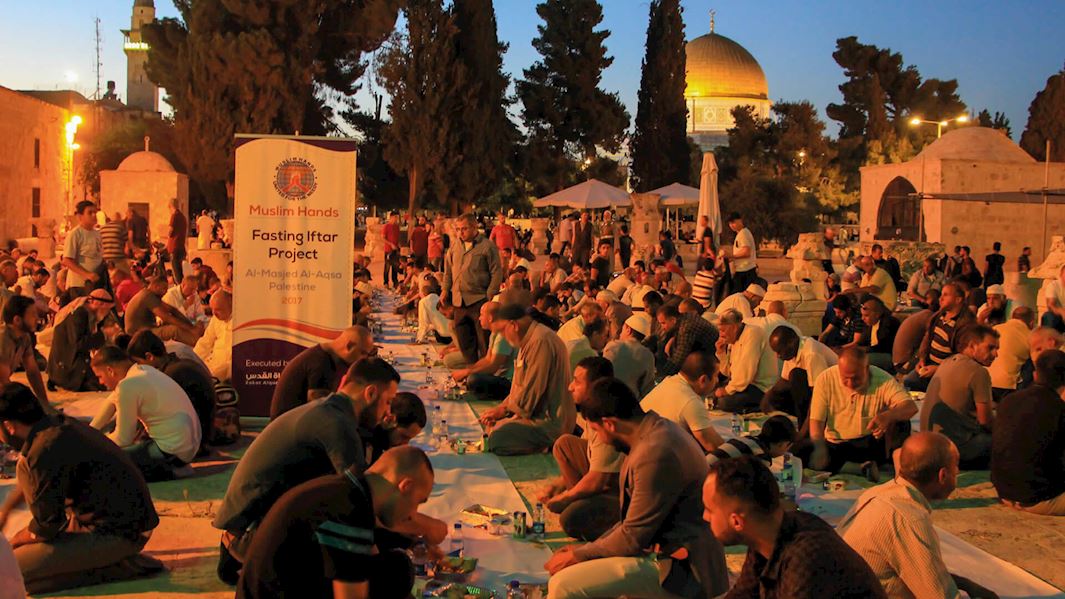
What doesn't break your fast in Ramadan?
- Breaking the fast forgetfully
- Eating anything between the teeth less than the size of a chick pea
- Involuntary vomiting or induced vomiting less than a mouthful
- Having a wet dream
- Delaying performing ritual bath
- Inhaling unavoidable particles in the air
- Injecting into the body
What is disliked (makruh) for a fasting person?
- Tasting or chewing something, including toothpaste
- Kissing or having sexual contact with their spouse if there is a fear of desire
What is recommended to do when fasting?
- Eat the pre-dawn meal (sahur) as it gives you strength for the fast
- Breaking the fast immediately with an odd number of dates, something sweet or water
What is fine to do when fasting?
- Using the toothstick (miswak) at any time during the day
- Rinsing the mouth and nose
- Taking a shower
- Applying scent
Muslim Hands is an award-winning charity, established in 1993 to help those needing emergency relief and tackling the root causes of poverty. This Ramadan, we can help you calculate your Zakat , send iftar across the world, sponsor an orphan and even build your own water well . For more ways to serve the Ummah, visit our Appeals page or call 0115 911 7222.

21 June 2024
The Impact of Giving Qurbani Locally in the UK
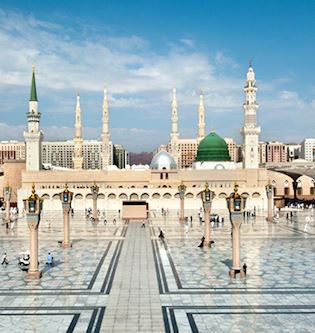
20 May 2024
Download Now: An Interactive Map of Madinah
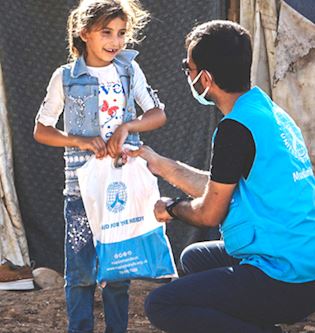
15 May 2024
Press Release: Charity to relaunch £1 million Qurbani appeal to support those impacted by conflict, climate change and the cost-of-living crisis
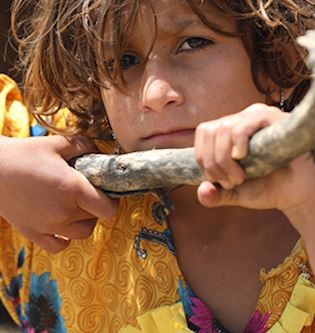
01 May 2024
Empowering street children with a government ID
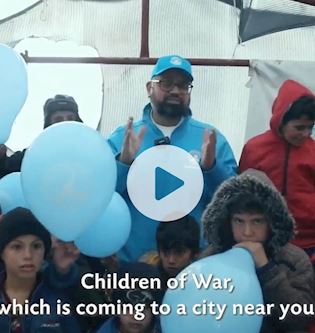
07 April 2024
Walk for the Children of War

05 April 2024
Divine Connections Between the Blessed Lands
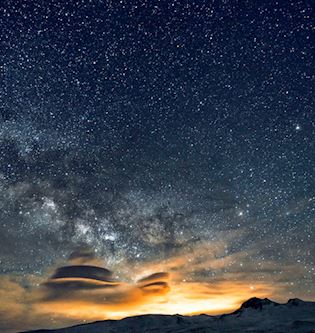
29 March 2024
Your Guide to Worship During the Last 10 Nights of Ramadan

28 March 2024
Virtues of the last 10 Nights of Ramadan

Established in 1993, Muslim Hands is an aid agency and NGO helping those affected by poverty, conflict and natural disaster in over 20 countries worldwide.
- Environment
- Road to Net Zero
- Art & Design
- Film & TV
- Music & On-stage
- Pop Culture
- Fashion & Beauty
- Home & Garden
- Things to do
- Combat Sports
- Horse Racing
- Beyond the Headlines
- Trending Middle East
- Business Extra
- Culture Bites
- Year of Elections
- Pocketful of Dirhams
- Books of My Life
- Iraq: 20 Years On
Everything you need to know about flying and fasting during Ramadan
From airline iftar boxes to calculating the correct timings for imsak, here are the main things to consider.
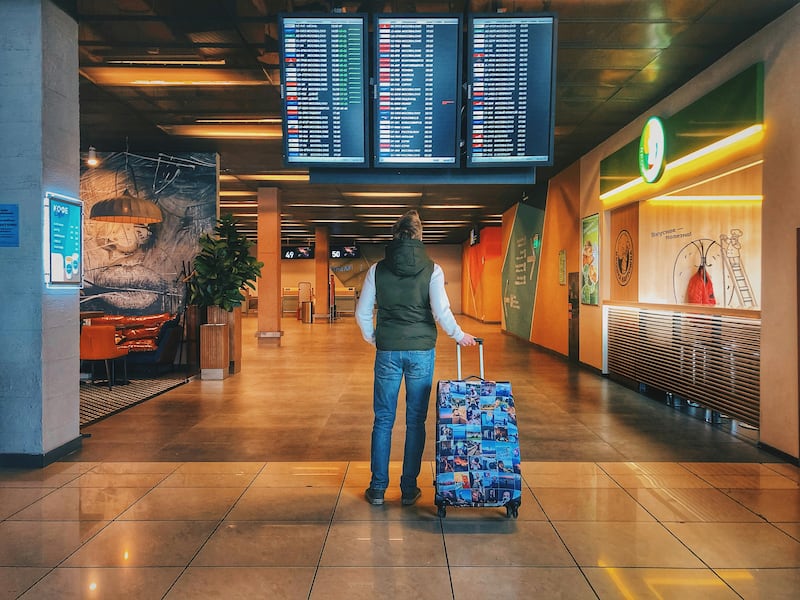
When travelling during Ramadan, things can be a little different for fasting passengers. Photo: Danila Hamsterman / Unsplash

The Muslim holy month is almost upon us. Every Ramadan , Muslims around the world fast from sunrise to sunset.
Waking before dawn to eat suhoor, people then refrain from eating or drinking anything until the sun goes down, when friends and family gather to break the fast together over iftar .
But when catching a flight, things can be a little different.
With changing time zones and the sun setting at a different time than in the country travellers may have departed from, here’s what you may need to know if you're catching a plane this Ramadan.
Do I need to fast when flying?
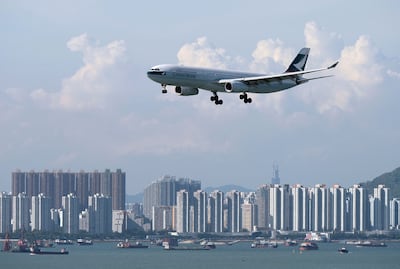
Many people continue to fast when flying and this is sometimes encouraged for shorter flights, but Muslims do not need to fast when travelling.
If the thought of breaking your fast mid-flight concerns you or you are worried about knowing the right times to eat, you can opt not to fast during your journey.
If fasting is not going to be feasible during your travels, Muslims can make up the days missed upon their return, or at any other suitable time in the future.
How do I know when to break my fast when flying?
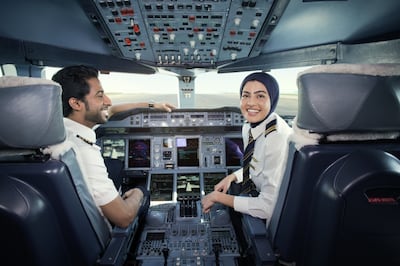
Travellers should follow the rules and times of where they are in the world, rather than those of the country that they departed from. That said, there's no need to stress about when you should break your fast, as on most airlines in the region, the captain or crew will inform passengers when it's time to eat, or to begin fasting again.
Emirates says it uses a tool to calculate the correct timings for imsak and iftar while in-flight, based on the times of sunrise and sunset of the location the flight is passing through, using the aircraft’s longitude, latitude and altitude.
If you are not flying in the GCC or are travelling on an airline that doesn't announce prayer times, you can simply break your fast once you see the sun set outside your window.
Will airlines give me food to break my fast when flying during Ramadan?

Several airlines, especially those in the Gulf or operating to and from Muslim countries, will offer passengers iftar or suhoor meals when flights coincide with these times.
This year, Emirates is serving iftar meals to passengers on flights from March 11. These will be presented in boxes designed with patterns from Emirati Al Sadu weavers. These Bedouin women would typically come together during Ramadan to spin and weave, while exchanging family news, singing and reciting poetry.
Dishes include baba ghanoush, Moroccan chicken and Arabic baklawa. Emirates’s Ramadan boxes will be served in addition to the regular hot meal service.
A smaller iftar box will also be served at select Emirates boarding gates at iftar time, including essentials such as water, laban and dates for travellers to comfortably break their fast.
From Abu Dhabi, Etihad Airways is serving Ramadan dishes that blend traditional Emirati and modern flavours with the likes of lamb bukhari with smoked cardamom yoghurt and chicken machbous pinza. Travellers flying in economy class will be served Arabic mezze, as well as a special Vimto mousse dessert.
Etihad passengers breaking their fast just before or after landing will be given Iftar bags decorated with a traditional Emirati artwork, containing laban, water, and dates, and passengers will also have the chance to donate their air miles during Ramadan.
Other airlines may not provide a regular meal service around iftar or suhoor times, but if you're flying economy class, you can ask the crew to hold your meal until you are able to eat it. In business and first-class cabins, you can typically order food as and when you require it.
If I'm not fasting but I'm flying during Ramadan, can I eat and drink as normal?
Travellers who are not Muslim or opting not to fast can continue to eat and drink as normal during flights, with airlines operating meal services, including serving alcoholic beverages if this is a service the airline typically provides.
On flights to Saudi Arabia during the holy month, some airlines may only serve cold meals.
Where can I pray on a plane during Ramadan?
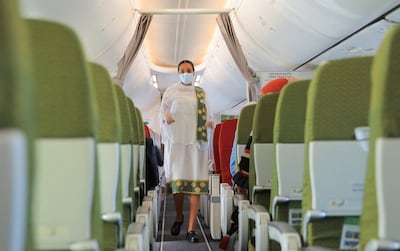
This very much depends on which airline you're travelling with.
If you are flying with Emirates or Etihad, you can use dedicated spaces designed for worship. Curtains can be pulled across so you have some privacy during your prayer; however, be aware that these spaces are limited and other passengers may want to pray too.
If you're flying with an airline that doesn't have an allocated praying space, or if the area is looking crowded with other travellers, you can simply pray in your seat, worshipping from your heart and head.
How do I know which direction to pray in when flying?
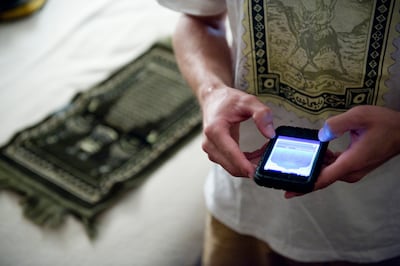
Some airlines have used technology to help make it easier for Muslims to identify which direction to pray in when flying. Real-time qibla finders built into entertainment systems are an effective way to identify the correct direction to face when offering prayers at any point during your flight.
Anything else I need to know?
Some airlines, including Emirates and Etihad Airways, provide Ramadan-themed television programmes, music stations and audio entertainment onboard.
Travellers can also download an app with passages from the Quran loaded onto it before flying, so you'll have something appropriate to read or listen to throughout your flight.
A version of this story first appeared on The National in April 2022
Checking In
Travel updates and inspiration from the past week

- Hi, My Account Subscriptions --> My KT Trading Contact Us Privacy Notice Sign Out
Mon, Jun 24, 2024 | Dhu al-Hijjah 18, 1445
Dubai 20°C
- Expo City Dubai
- Emergencies
- Ras Al Khaimah
- Umm Al Quwain
Life and Living
- Visa & Immigration in UAE
- Banking in UAE
- Schooling in UAE
- Housing in UAE
- Ramadan 2024
- Saudi Arabia
- Philippines
- Cryptocurrency
- Infrastructure
- Currency Exchange
- Horse Racing
- Local Sports
Entertainment
- Local Events

Dubai World Cup
- Track Notes
- Big Numbers
- Daily Updates
- Arts & Culture
- Mental Health
- Relationships
- Staycations
- UAE Attractions
- Tech Reviews
- Motoring Reviews
- Movie Reviews
- Book reviews
- Restaurant Reviews
- Young Times
Supplements
- Back To School
- Eid-Al-Adha
- It’s Summer Time
- Leading Universities
- Higher Education
- India Real Estate Show
- Future Of Insurance
- KT Desert Drive
- New Age Finance & Accounting Summit
- Digital Health Forum
- Subscriptions
- UAE Holidays
- Latest News
- Prayer Timings
- Cinema Listings
- Inspired Living
- Advertise With Us
- Privacy Notice
KT APPDOWNLOAD

Fasting while travelling? Here are some tips that will help

Embracing the bright side: A guide on how to cultivate optimism

The power of solitude: Why you should go on a solo trip

How to get your kids to read: Essential tips for parents

Two UAE travel bloggers share their experience and advice
- Follow us on

Published: Fri 10 May 2019, 12:00 AM
Last updated: Tue 21 Nov 2023, 11:10 AM
Ramadan is the most important month of the year for Muslims around the world as they will be enjoying a spiritual boost. For many, however, this month will also include some form of travelling, whether it is for business, leisure or religious reasons such as the pilgrimage to Saudi Arabia.
Personally, when I travel during Ramadan, I try to ensure I can either fast depending on the duration of travel or that I miss only one fast rather than multiple ones. All this, of course, depends on your destination, your health and your transportation mode. Islam is a beautiful religion that doesn't put more burden on people than what they can handle, so it gives the option to not fast during this time. However, you do have to make up the fast later.
Here are some of my tips for fasting while visiting another country:
I have found that it is easier to fast while travelling by car, rather than having to catch a plane which takes several hours. If I will be flying, I always try to avoid very long distances.
I will make sure to book a flight that leaves close to Maghrib time so then I can break my fast while in the air or at the airport.
Make sure you pack healthy snacks that can keep you full for longer. Let's be honest, I am sure I am not the only one who starts travelling and feels hunger pretty much rightaway. If this sounds familiar, make sure you pack healthy snacks such as protein bars, nuts, dates, fruits and wholemeal that can keep you full for longer. We use a lot of energy during travel so we do get hungry much faster.
My last tip is to prepare for the day before you travel and make dua, eat healthy foods and drink plenty of liquids if you decide to fast on your journey. This will make it easier for you to contain your hunger and concentrate during those hours of travelling.
Elena Nikolova
Is the founder of www.muslimtravelgirl.com. You can follow her on Instagram or on Facebook @muslimtravelgirl
As a culinary student, I've found that I have to travel a lot of late. Travel has progressively become a huge part of everyone's life, myself included. Last year, I had to travel during Ramadan and it was hard. I remember many friends and Instagram followers asking me how that was possible, and how I could maintain my fast while in another place. That's why I think it would be immensely helpful to readers and followers if I share some of my top fasting tips and experiences, while travelling, here.
1) Try visiting a Muslim country: It may be easier as they will have similar practices.
2) Visit a country with shorter fasting time: As you probably know, the time of sunrise and sunset differ from country to country, which affects your fasting time.
3) Carry dates with you: They're a quick, nutritious snack to help you break fast when you're out and about.
4) Avoid activities that are tiring: This can vary from person to person, but if you know it will drain you of your energy maybe save it for another time.
5) Stay in the shade whenever possible: You don't want to feel dehydrated, right?
6) Ensure you do not skip suhoor: This will help you keep your fast while travelling. I recommend you start your suhoor with one fruit, a cup of yoghurt or milk.
7) Make a small iftar pack: Some dates, a small bottle of water, etc can go a long way.
8) Try not to eat oily foods: I've found that these make you thirstier later.
9) After iftar: Eat some dried fruits and drink sharbat or a sweet drink after you are done with your meal.
I hope these tips come in handy when planning a trip during Ramadan.
Nasrin Khodadadi
Is a culinary student and the food and travel blogger behind www.mrsnoondxb.com. Follow her on Instagram @mrsnoondxb
More news from WKND
Ask the therapist: help my friend is seriously depressed.
When a depression lasts more than two weeks, it is important to seek help of a mental healthcare provider.
wknd 3 years ago -->
WKND Spotlight: Byju's scores big in online education
Edtech entrepreneur and one of India's youngest billionaires Byju Raveendran talks about how he ended up at the forefront of a major shakeup of the country's education ecosystem.
Telling stories that 'stick'
Everyone knows that oral and written traditions of storytelling are the most effective ways to pass on values. The modern marketplace is no different
Looking at a 'phygital' future
Galleries are adapting and evolving to blend virtual spaces with their traditional offline activities
That elusive name game
Inside the theatre of digital art, restaurant review: nassau.
Head Chef Silvena Rowe is well known for her long-time emphasis on using fresh and organic produce in her dishes
World Arthritis Day: How fitness can alleviate physical and mental pain
Exercise can help reduce joint pain and stiffness, while increasing flexibility, muscle strength, cardiac fitness and endurance
Type your keywords
National Geographic content straight to your inbox—sign up for our popular newsletters here

What you need to know when travelling during Ramadan
Ramadan is the holiest month in the Islamic calendar, but how do you navigate travelling during this time and should you be travelling at all?
Ramadan is the month in which Muslims believe God first spoke to the Prophet Muhammad; when the community won its very first battle and when Muhammad returned triumphant to Mecca in 630 CE.
In the month of Ramadan, Muslims enter a period of pious abstinence during the day, fasting from sunrise until sunset, and engage in fervent worship through the night. As a result, many Muslim-majority countries adjust their societal norms accordingly. So, what is it like to travel to these places in Ramadan, and should we travel to them during this month? Here are the answers to key questions on travellers’ minds.
How do I know when Ramadan starts?
Every year Ramadan falls on a different date in the Gregorian calendar. This is because the Islamic calendar follows the actual cycle of the moon and so the start date is only confirmed the night before when the new moon has been sighted. Even then, regional differences mean Muslims often start and end Ramadan on slightly different days. For example, while many Sunni Muslim countries will follow the announcement by Saudi Arabia, some will go with their own domestic sighting, so it’s important to check locally if you’re trying to avoid the month or are seeking it out.
Can I eat in public during daylight hours?
This all depends on what kind of Muslim area you’re travelling to. If it’s a place in a Muslim country with a religiously mixed community, like Sarajevo in Bosnia or a place used to hosting non-Muslim tourists throughout the year, like Sharm el-Sheikh in Egypt, then yes, this is fine. However, when travelling through Muslim-majority communities that are not mixed or unfamiliar with tourism, it’s best to eat and drink behind closed doors during the day.
Can I consume alcohol (and what about soft drinks)?
Where the community is mixed or used to serving non-Muslim tourist traffic, the bars will most likely be open and function as normal. In areas where the community is largely Muslim or unfamiliar with tourists, such as the Muslim-majority state of Pattani in southern Thailand, it’s unlikely you’ll even be able to source alcohol there and, if you do, as with eating in public, it’s advisable to drink it behind closed doors.

Will every Muslim be fasting?
While fasting is an obligation for every able adult Muslim, those that are ill, pregnant, breastfeeding, menstruating or travelling don’t have to fast. However, even these Muslims will be respectful in areas where everyone appears to be fasting by not eating or drinking outside during daylight hours.
What should I be wearing and is it any different to any other time of the year?
No, you should wear whatever you would expect to be wearing in your destination based on your research, as there are no specific changes to the way Muslims dress during Ramadan. However, some may choose to dress more conservatively because of the pious mindsight they’ll be adopting during the month.
Are tourist attractions, shops and restaurants open?
Muslim-majority towns and cities will make a noticeable shift in the working hours of most businesses during Ramadan. However, to which degree will again largely depend on the kind of Muslim area you’re travelling to. For example, in Muslim-majority Tunisia somewhere like Kairouan, a very holy city not on the popular tourist trail, will appear sleepier and slower during the day with most local businesses opening and closing much later than usual (if at all). Meanwhile, almost nothing may change for travellers visiting the Tunisian tourist hotspot of Sidi Bou Said, during Ramadan.

Will I be allowed to visit mosques, shrines or Sufi lodges (sacred religious spaces separate from the mosque) during Ramadan?
Once the sun sets, places of worship will be heaving with people during Ramadan and this will continue right through to the early hours of the morning. In the multi-religious and tourist savvy places, it may be possible to join an iftar — the meal to break the fast — for free at a large mosque, but otherwise the ideal time to visit places of worship will be between dhuhr (midday) and asr (mid-afternoon) prayers. This is because the caretakers of these spaces will be resting in the early part of the day following lengthy prayers late into the previous night. That said, many larger mosques and spaces of worship in tourist cities, such as Istanbul, may open as normal during the early part of the day.
What regional differences can I expect during Ramadan?
Each region will have its own distinct Ramadan foods, be they sickly sweet jalebis across the subcontinent, delicious mercimek çorbası (lentil soup) in Anatolia or filling koshari in Egypt. In Bosnia, many large mosques host live Qur’anic recitations where locals gather to listen during the day, while in Malaysia the mouthwatering iftar buffets at hotels are legendary. Meanwhile, the nights across the Gulf are filled with shrieking crowds watching nocturnal neighbourhood football tournaments and in Algeria it’s the sound of traditional chaabi and ma’luf music you’ll hear drifting out of local theatres playing host to special late night Ramadan concerts.
How might I experience Ramadan best as a tourist?
With night effectively turning to day, if you do intend to travel to a Muslim-majority place during Ramadan, do what the locals do. Sleep in the early part of the day and stay up late into the night, revelling in the festive atmosphere of town centres and around large mosques, before eating the delicious and unique Ramadan foods and heading out to either watch a raucous local cup final in a Jeddah neighbourhood, or join a concert in Constantine.
Related Topics
- RELIGIOUS TRAVEL
- CULTURAL TOURISM
- ISLAMIC WORLD
You May Also Like

How do we know when Ramadan starts and ends? It’s up to the moon.

Why Ramadan is the most sacred month in Islamic culture
Fuel their curiosity with your gift.

This unique Camargue pilgrimage is a fitting tribute to France's most singular region

Open a portal to the underworld at these Buddhist ‘hell parks’

Experience: The Festival of the Giant Omelette

Top 10 pilgrimage routes around the world

Meet Sara-la-Kali, the patron saint of displaced people
- Perpetual Planet
- Environment
History & Culture
- History Magazine
- History & Culture
- Race in America
- Mind, Body, Wonder
- Paid Content
- Adventures Everywhere
- Terms of Use
- Privacy Policy
- Your US State Privacy Rights
- Children's Online Privacy Policy
- Interest-Based Ads
- About Nielsen Measurement
- Do Not Sell or Share My Personal Information
- Nat Geo Home
- Attend a Live Event
- Book a Trip
- Inspire Your Kids
- Shop Nat Geo
- Visit the D.C. Museum
- Learn About Our Impact
- Support Our Mission
- Advertise With Us
- Customer Service
- Renew Subscription
- Manage Your Subscription
- Work at Nat Geo
- Sign Up for Our Newsletters
- Contribute to Protect the Planet
Copyright © 1996-2015 National Geographic Society Copyright © 2015-2024 National Geographic Partners, LLC. All rights reserved
Ashura Quotes, Wishes, and Messages to Commemorate the Islamic Holy Day
Reflect on the 10th of Muharram with these sentiments of peace, remembrance, and hope.

In some countries, Ashura is a public holiday. It is observed with special foods and events to help signify its importance. Ashura is observed for several reasons. It commemorates the brutal killing of Prophet Muhammad’s grandson Hussain Ibn Ali (Imam Hussain) when he stood up against injustice and oppression. It also marks the massacre that took place in Karbala, Iraq in 680 A.D. During this event, the water supply was cut off from Imam Hussain and his companions, and the male descendants of Prophet Muhammad’s family were unjustly killed.
Another reason is that Muslims believe that God parted the Red Sea on Ashura. This freed Moses and the Children of Israel from Pharoah and his oppression. To show his gratitude to God, Moses started fasting on this day. Muslims also fast on this day to follow the example of Moses and rejoice in God’s Mercy.
Here are some messages and wishes to share with others and quotes to reflect on during Ashura and the month of Muharram. For more on Islam, be sure to read through our list of Quran quotes next.
Ashura Messages and Wishes

Just the way God relieved the worries of many Prophets on this day, may He relieve you of your troubles too.
May God reward you for loving His Prophet and the Prophet’s family.
May God accept your fasting.
May all your prayers and fasts be accepted on this 10th day of Muharram.
My wish for you is that your Ashura is filled with the mercy and compassion of Allah.
Wishing you peace and blessings on this solemn day of Muharram.
On this blessed day of Ashura, may Allah forgive our sins as we start the new Islamic year.
As we commemorate Ashura, let us reflect on the bravery and faith of Imam Hussain and his companions. May their legacy inspire us to stand for justice and truth.
Remembering the martyrs of Karbala.
May your relationship with Allah increase in Muharram, the month of Allah.
Thankful to be starting the new Islamic year with fasting and community.
Ashura Quotes

Apart from being the day God saved Moses and the Children of Israel, it is also the day that God saved many other prophets too. Noah, Jonah, and Job are all said to have found relief on the day of Ashura. It is also said that God accepted Prophet Adam’s repentance on this day after he ate from the forbidden tree.
Narrated by Ibn Abbas: "The Prophet Muhammad emigrated to Medina and saw that Jewish people fasted on this day. He asked them 'What is this?' They said, 'This is a righteous day, it is the day when God saved the Children of Israel from their enemies, so Moses fasted on this day.' Due to the close relationship of Prophet Muhammad to Prophet Moses, Prophet Muhammad then commanded his followers to fast this day too." — Bukhari
Narrated by 'Aisha: "The people used to fast on the day of Ashura before fasting in Ramadan was prescribed but when (the order of compulsory fasting in) Ramadan was revealed, it was up to one to fast on Ashura or not." — Bukhari
“I never saw the Messenger of Allah so keen to fast any day and give it priority over any other time than the day of Ashura and the month of Ramadan.” — Al-Bukhari
“This is the day on which the Ark settled on the mount, so Noah fasted this day in thanks.”— Imam Ahmad
Prophet Muhammad Family Quotes

Giving respect to the Prophet’s Muhammad family is something that is believed by both Sunni and Shia sects of Islam. It is mentioned in the Quran as well in the following verse:
Say (O Prophet), “I do not ask you any fee for it, except the love of kinship.” 42:23
The Prophet Muhammad did not charge Muslim believers a fee for the knowledge and guidance he provided them. Ibn Abbas explained that this verse was revealed to emphasize the importance of maintaining good relations with the Prophet’s family. This is why the slaughter of the Prophet’s family, particularly his grandson, Hussain, is such a big deal.
Abu Huraira narrated: “The Prophet Muhammad called for Hassan, who came running and jumped into his lap. The Prophet then said, ‘O God, I love him, so love him and those who love him.’” — Al Adab Al Mufrad
Muharram Quotes

"Verily, the number of months with Allah is twelve months (in a year), so it was ordained by Allah on the Day when He created the heavens and the earth; of them, four are sacred. That is the right religion, so wrong not yourselves therein … " — Qur’an 9:36
"The year is twelve months of which four are sacred, the three consecutive months of Dhul-Qa'dah, Dhul-Hijjah and Muharram, and Rajab which comes between Jumadah and Sha'ban." — Bukhari
“The Messenger of Allah (saw) said: ‘The best of fasting after Ramadan is fasting Allah’s month of Muharram.” — Muslim

Kate Franke (she/her) is the editorial assistant at Woman’s Day . She loves all things lifestyle, home, and market related. Kate has a BAJMC in Magazine Media and BA in Writing from Drake University. She is a proud ASME alum whose work has appeared in Food Network Magazine , The Pioneer Woman Magazine , Better Homes & Gardens , Modern Farmhouse Style , Beautiful Kitchens & Baths , and more. Next to writing, Kate’s two favorite things are chai lattes and pumpkin bread!
Manal Aman is a lifestyle expert and founder of Hello Holy Days! where she designs fun products for Muslim holidays. She’s licensed her art to retailers like Crate & Kids and American Greetings and her products can be found all across North America at stores like Paper Source in the US and Indigo! in Canada. She’s worked with Martha Stewart, Real Simple, Better Homes & Gardens, Chatelaine and countless other media sites over the past decade sharing inspiring ideas and helpful tips for celebrating Muslim holidays. You can find her over at www.helloholydays.com and @helloholydays on social media.
.css-a5v893:before{top:1.4rem;left:calc(-50vw + 50%);width:100vw;height:0.0625rem;z-index:-1;content:'';position:absolute;border-top:0.0625rem solid #D4D4D4;} Faith and Religion
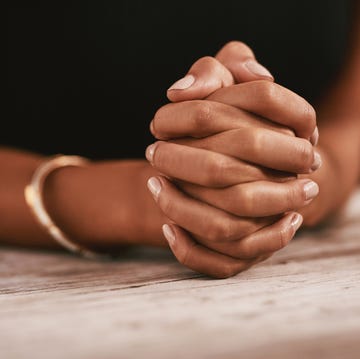
32 Inspirational Confirmation Quotes

The 80 Most Inspirational Bible Quotes to Read
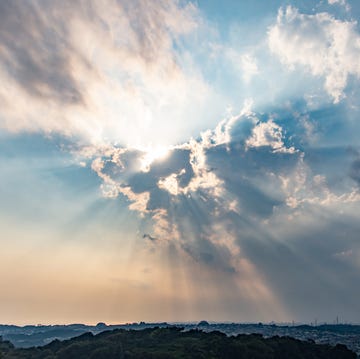
If You Keep Seeing 1144, Read This ASAP

We All Have a Life Path Number — What's Yours?

13 Summer Blessings for Vacation

40 Mother's Day Bible Verses That Are Full of Love

110 Inspirational Buddha Quotes on Love and Life

50 Bible Verses About Mothers

25 Powerful Prayers for Healing and Strength

30 Graduation Bible Verses for Faithful Graduates
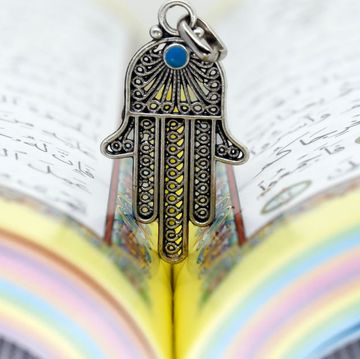
What Is the Hamsa — And What Does the Symbol Mean?
- You Are At:
Hajj: Deadly heatwaves kill over 1300 Muslims during holy pilgrimage, Saudi accuses travel agencies for deaths
In saudi arabia, temperatures soared above 46 degrees celsius and 49 degrees celsius in mecca and sacred sites in and around the city. this resulted in a high number of deaths this year, according to authorities..

660 Egyptians among those killed during hajj
Speaking with the state-owned Al Ekhbariya TV, the minister said 95 pilgrims were being treated in hospitals, some of whom were airlifted for treatment in the capital, Riyadh. He said the identification process was delayed because there were no identification documents with many of the dead pilgrims. He said the dead were buried in Mecca, without giving a breakdown. The fatalities included more than 660 Egyptians. All but 31 of them were unauthorized pilgrims, according to two officials in Cairo. Egypt has revoked the licenses of 16 travel agencies that helped unauthorized pilgrims travel to Saudi Arabia, authorities said.
The officials, who spoke on condition of anonymity because they were not authorised to brief journalists, said most of the dead were reported at the Emergency Complex in Mecca's Al-Muaisem neighborhood. Egypt sent more than 50,000 authorised pilgrims to Saudi Arabia this year. Saudi authorities cracked down on unauthorized pilgrims, expelling tens of thousands of people. But many, mostly Egyptians, managed to reach holy sites in and around Mecca, some on foot. Unlike authorized pilgrims, they had no hotels to return to to escape the scorching heat.
Egypt travel agencies under radar
In a statement Saturday, Egypt's government said the 16 travel agencies failed to provide adequate services for pilgrims. It said these agencies illegally facilitated the travel of pilgrims to Saudi Arabia using visas that don't allow holders to travel to Mecca. The government also said officials from the companies have been referred to the public prosecutor for investigation.
According to the state-owned Al-Ahram daily, some travel agencies and Hajj trip operators sold Saudi tourist visas to Egyptian Hajj hopefuls, violating Saudi regulations which require exclusive visas for pilgrims. Those agencies left pilgrims in limbo in Mecca and the holy sites in scorching heat, the newspaper said. The fatalities also included 165 pilgrims from Indonesia, 98 from India and dozens more from Jordan, Tunisia, Morocco, Algeria and Malaysia, according to an Associated Press tally. Two US citizens were also reported dead.
Deaths in hajj are common
Historically, deaths are not uncommon at the Hajj, which has seen at times over 2 million people travel to Saudi Arabia for a five-day pilgrimage. The pilgrimage's history has also seen deadly stampedes and epidemics. But this year's tally was unusually high, suggesting exceptional circumstances.
In 2015 a stampede in Mina killed over 2,400 pilgrims, the deadliest incident ever to strike the pilgrimage, according to an AP count. Saudi Arabia has never acknowledged the full toll of the stampede. A separate crane collapse at Mecca's Grand Mosque earlier the same year killed 111. The second-deadliest incident at the Hajj was a 1990 stampede that killed 1,426 people. During this year's Hajj period, daily high temperatures ranged between 46 degrees Celsius (117 degrees Fahrenheit) and 49 degrees Celsius (120 degrees Fahrenheit) in Mecca and sacred sites in and around the city, according to the Saudi National Center for Meteorology. Some people fainted while trying to perform the symbolic stoning of the devil.
The Hajj, one of the five pillars of Islam, is one of the world's largest religious gatherings. More than 1.83 million Muslims performed the Hajj in 2024, including more than 1.6 million from 22 countries, and around 222,000 Saudi citizens and residents, according to the Saudi Hajj authorities. Saudi Arabia has spent billions of dollars on crowd control and safety measures for those attending the annual five-day pilgrimage, but the sheer number of participants makes it difficult to ensure their safety.
Climate change
Climate change could make the risk even greater. A 2019 study by experts at the Massachusetts Institute of Technology found that even if the world succeeds in mitigating the worst effects of climate change, the Hajj would be held in temperatures exceeding an “extreme danger threshold” from 2047 to 2052, and from 2079 to 2086.
Islam follows a lunar calendar, so the Hajj comes around 11 days earlier each year. By 2029, the Hajj will occur in April, and for several years after that it will fall in the winter, when temperatures are milder.
(With inputs from agency)
Also Read: At least 98 Indian pilgrims die of heatstroke during hajj, MEA clarifies amid conflicting reports
Read all the Breaking News Live on indiatvnews.com and Get Latest English News & Updates from World
- saudi arabia
- hajj pilgrimage
- hajj pilgrims

'Positively looking forward for coordination to run Parliament': Kiren Rijiju

Amrish Puri's grandson Vardhan steals the spotlight with suave look at Sonakshi-Zaheer's reception

WI vs SA Live Score, Super 8: Markram dismissed after resumption, West Indies get big wicket
Related World News

Video: Terrorists in Russia's Dagestan openly shoot people on streets, set ablaze churches

Russia: 15 policemen, priest killed in deadly terror attack on churches, security posts in Dagestan

Pakistan: 23 arrested for lynching, hanging man in public on allegations of Quran desecration

Another mass shooting in US as gunman opens fire in New York park, six injured

Who was Dasari Gopalakrishna? Andhra man among four killed in US grocery store shooting
Latest News

Andre Russell moves past Dwayne Bravo to create all-time T20 World Cup record for West Indies

Harmeet Singh calls for improved training facilities in USA ahead of ICC Men's T20 World Cup 2026
- Aap Ki Adalat
- Aaj Ki Baat
- Kurukshetra
- Haqiqat Kya Hai
- Entertainment

Haqiqat Kya Hai: Rahul's questions are ready...so Modi government is ready!

Coffee Par Kurukshetra: Modi decreased, opposition increased... will the competition be tough tomorrow?

Muqabla: Bihar Haryana Maharashtra Gujarat... question paper leaked everywhere?

Sonakshi Sinha's goofy moment with paps before her wedding goes viral | 23 June | E Wrap

Poaching Scam: Sri Lanka Navy arrests 18 more Indian fishermen on poaching charges
- Maharashtra
- Uttar Pradesh
- Madhya Pradesh
- West Bengal
- Jammu & Kashmir
- Chhattisgarh

Indian Air Force orders six made-in-India Tapas surveillance drones from Centre

INDIA bloc MPs to assemble in Parliament, march unitedly to Lok Sabha on first day of session

First session of 18th Lok Sabha to begin today, PM Modi, newly elected members to take oath

Rahul Gandhi pens emotional note for Wayanad people ahead of taking oath as Raebareli MP

NEET-UG paper leak case: 750 out of 1,563 candidates awarded grace marks skip re-exam, 813 appear
- Constituencies
- Key Candidates

Andrew McDonald shields under fire Ashton Agar following T20 World Cup Super Eight defeat to Afghani

IND vs AUS, Super 8, Weather Forecast: Rain threatens T20 World Cup semifinal decider in St Lucia

Hajj: Deadly heatwaves kill over 1300 Muslims, Saudi Arabia accuses travel agencies for deaths

- Celebrities

Sonakshi Sinha gets 'emotional' as Zaheer Iqbal's close friend lovingly puts garland on her | WATCH

Anil Kapoor on success of film 'Crew': 'One shouldn't be afraid to make women-led films...'

After Poonam Sinha's wedding attire, Sonakshi Sinha opts for red Banarasi saree for her reception

Sonakshi Sinha, Zaheer Iqbal's wedding pictures are out, couple registers their marriage
- Live Scores
- Other Sports

How to livestream on Instagram exclusively for your ‘Close Friends’ list? Steps to follow

iPhone 16 leak reveals major expected design of the camera, shutter button and more

iOS 18 Beta 2 arriving tomorrow with iPhone Mirroring and enhanced SharePlay: All you need to know

How to make calls when your smartphone is out of network area?

Redmi 14C 5G, successor to the Redmi 13C 5G expected to launch in India: Details

Horoscope Today, June 24: Pisces to gain monetary benefits; know about other zodiac signs

Weekly Horoscope (June 24-June 30): New possibilities in love for Aries; know about other zodiac sig

Horoscope Today, June 23: Gemini to receive good news; know about other zodiac signs

Horoscope Today, June 22: Aries will get relief from health-related problems

Horoscope Today, June 21: Taurus might travel abroad for important work

Canara Bank's X account hacked, username changed to 'ether.fi'

Will petrol, diesel come under GST? | Here's what FM Sitharaman said in GST council meeting | VIDEO

Sitharaman's big announcements in GST Council meet: From hostels to platform tickets | Key takeaways

CNG price in Delhi NCR, adjoining cities hiked by Rs 1 per kg | Check new rates

Nirmala Sitharaman holds pre-budget consultation meeting with finance ministers of state, UT

Ultra-processed food, sedentary lifestyle risk cancers in Indians under 40, reveal doctors

Eating handful of makhana daily will make bones stronger; know other health benefits

What is Arthritis? Know how treatment differs between young and old patients

Managing gestational diabetes early in pregnancy could prevent complications: Study

Tooth loss and chronic renal disease may be related in postmenopausal women: Study

How to Train Children to Fast During Ramadan
A s Ramadan approaches, many parents may wonder how to introduce the practice of fasting to their children in a gentle and effective manner. Fasting during Ramadan is a significant aspect of Islamic practice, and while children are not obligated to fast until they reach a certain age, it's essential to instill in them the importance and beauty of this sacred tradition.
In this guide, we'll explore ten practical tips for helping children ease into fasting during Ramadan, ensuring a positive and rewarding experience for both parents and children alike.
Read More: Things To Do With Your Family in Ramadan
Assess Physical Readiness
Before encouraging your child to fast, it's crucial to ensure they are physically ready. Every child develops at their own pace, so observe their health and well-being to determine if they are prepared for fasting. Remember, there is no one-size-fits-all approach, and some children may be ready at a younger age than others.
Mental Preparation
Engage your child in conversations about the significance of fasting in Islam. Offer simple explanations about why Muslims fast during Ramadan, emphasizing concepts like obedience to Allah and developing self-discipline. Encourage them to ask questions and provide age-appropriate answers to deepen their understanding.
Read More: 10 Health Benefits of Fasting During Ramadan
Provide Distractions
Keep children engaged and occupied during fasting hours by offering fun activities and distractions. Encourage them to spend time with friends, play games, read books, or engage in creative projects. By keeping their minds occupied, they'll be less focused on feelings of hunger or thirst.
Offer Positive Reinforcement
Motivate and reward your child's fasting efforts with praise and encouragement. Celebrate their achievements, no matter how small, and acknowledge their dedication to observing Ramadan. Consider creating a visual chart to track their progress and offer incentives for reaching fasting milestones.
Read More: Things you didn’t know about fasting in Ramadan
Discuss the Virtues of Fasting
Educate your child about the virtues and rewards of fasting in Islam. Share stories from the Quran and Hadith that highlight the blessings of Ramadan, such as the forgiveness of sins, increased spiritual growth, and the attainment of taqwa (God-consciousness). Help them understand the significance of their fasting efforts.
Plan Nutritious Suhoor Meals
Ensure your child starts their fast with a wholesome pre-dawn meal (suhoor) to sustain them throughout the day. Prepare nutritious foods that provide long-lasting energy, such as complex carbohydrates, protein, and healthy fats. Involve your child in meal planning and preparation to make suhoor a special and enjoyable experience.
Read More: Here Is How You Can Keep Your Skin Hydrated While Fasting
Make Dua (Supplication)
Pray to Allah for guidance and support in helping your child observe fasting during Ramadan. Offer sincere supplications for their success and spiritual growth, trusting in Allah's mercy and blessings. Involve your child in dua sessions, teaching them the importance of seeking Allah's help in all endeavors.
Lead by Example
Set a positive example for your child by practicing fasting yourself during Ramadan. Let them see you observe the fast with patience, gratitude, and devotion. Share your own experiences and reflections on fasting, demonstrating its importance in your life as a Muslim. Your actions will inspire and motivate your child to embrace fasting as a cherished part of their faith.
Read More: When does fasting start and end?
Foster a Supportive Environment
Create a supportive and nurturing atmosphere at home that encourages your child to embrace fasting willingly. Foster open communication, listen to their concerns, and offer reassurance and guidance as needed. Encourage siblings and family members to support each other in their fasting journey, fostering a sense of unity and solidarity.
Celebrate Achievements
Celebrate your child's fasting achievements and milestones with joy and excitement. Organize special rewards or outings to commemorate their dedication and perseverance throughout Ramadan. Whether it's a small treat, a family outing, or a heartfelt congratulatory message, let your child know how proud you are of their commitment to fasting and faith.
This article was posted on UAEMoments

Hajj heat deaths: 500 Egyptian pilgrims perish in 124-degree temps
CAIRO − Egypt formed a crisis unit on Thursday to investigate the deaths of Egyptians taking part in the annual Muslim pilgrimage to Mecca during extreme heat, after medical and security sources said at least 530 Egyptians had died and 31 were missing.
In recent days hundreds of people from different countries have died in punishing conditions for the hajj pilgrimage in the Saudi Arabian city, where temperatures have at times exceeded 124 degrees.
Record heat is broiling countries across the Northern Hemisphere .
The medical source, who was with the official Egyptian hajj delegation, told Reuters the majority of those who died were not formally registered for the event with the authorities, which meant they could not access tents and take shelter from the punishing sun. The Guardian newspaper reported Thursday that more than 1,000 pilgrims from different countries had died.
In a statement announcing the formation of the crisis unit on the orders of President Abdel Fattah al-Sisi, Egypt's cabinet said 28 deaths had been confirmed from a group of 50,752 officially registered Egyptian pilgrims.
More: As 100 million broil under heat dome, more 'unbearable' temps on the way
The Egyptian statement gave no toll for unregistered pilgrims, saying Egypt was seeking an accurate inventory of the dead and missing and was coordinating with Saudi counterparts to arrange for the transfer of bodies.
Companies that had facilitated travel for unregistered pilgrims would be investigated and penalized, the cabinet added.
Dangerous heatwaves are scorching cities on four continents as the Northern Hemisphere marks the first day of summer, a sign that climate change may again bring about record-breaking heat that could surpass last summer as the warmest in 2,000 years.
More: Can you blame heat wave on climate change? Eye-popping numbers suggest so.
Countries around the Mediterranean endured another week of blistering high temperatures that have contributed to forest fires from Portugal to Greece and along the northern coast of Africa in Algeria, according to the U.S. National Oceanic and Atmospheric Administration's Earth Observatory.
A Reuters witness in Saudi Arabia said that during the pilgrimage thousands of pilgrims had lain on the streets, exposed to the sun, on the climb to Mount Arafat, one of the integral rituals of the journey.
The bodies of dead pilgrims were later covered with Ihram cloth - a simple garb worn by pilgrims - until medical vehicles arrived, the witness said.
The fifth pillar of Islam, the hajj is mandatory once in a lifetime for every able-bodied Muslim who can afford it and is the most significant manifestation of Islamic faith and unity. This year's event, which began last Friday, is expected to draw nearly 2 million pilgrims.
Climate scientists have said rising temperatures pose a growing threat to the event, although heat-related deaths along the hajj are not new, and have been recorded as far back as the 1400s.
- Investigates
- Houston Life
- Newsletters
WEATHER ALERT
3 warnings in effect for 5 counties in the area
More than 1,300 people died during hajj, many of them after walking in the scorching heat.
Associated Press
Copyright 2024 The Associated Press. All rights reserved
FILE - Muslim pilgrims circumambulate the Kaaba, the cubic building at the Grand Mosque, during the annual Hajj pilgrimage in Mecca, Saudi Arabia, Monday, June 17, 2024. More than 1,000 people died during this years Hajj pilgrimage in Saudi Arabia as the faithful faced extreme high temperatures at Islamic holy sites in the desert kingdom, officials said Sunday, June 23, 2024. (AP Photo/Rafiq Maqbool, File)
CAIRO – More than 1,300 people died during this year’s Hajj pilgrimage in Saudi Arabia as the faithful faced extreme high temperatures at Islamic holy sites in the desert kingdom, Saudi authorities announced Sunday.
Saudi Health Minister Fahd bin Abdurrahman Al-Jalajel said that 83% of the 1,301 fatalities were unauthorized pilgrims who walked long distances in soaring temperatures to perform the Hajj rituals in and around the holy city of Mecca .
Recommended Videos
Speaking with the state-owned Al Ekhbariya TV, the minister said 95 pilgrims were being treated in hospitals, some of whom were airlifted for treatment in the capital, Riyadh. He said the identification process was delayed because there were no identification documents with many of the dead pilgrims.
He said the dead were buried in Mecca, without giving a breakdown.
The fatalities included more than 660 Egyptians. All but 31 of them were unauthorized pilgrims, according to two officials in Cairo. Egypt has revoked the licenses of 16 travel agencies that helped unauthorized pilgrims travel to Saudi Arabia, authorities said.
The officials, who spoke on condition of anonymity because they were not authorized to brief journalists, said most of the dead were reported at the Emergency Complex in Mecca’s Al-Muaisem neighborhood. Egypt sent more than 50,000 authorized pilgrims to Saudi Arabia this year.
Saudi authorities cracked down on unauthorized pilgrims, expelling tens of thousands of people. But many, mostly Egyptians, managed to reach holy sites in and around Mecca, some on foot. Unlike authorized pilgrims, they had no hotels to return to to escape the scorching heat.
In a statement Saturday, Egypt's government said the 16 travel agencies failed to provide adequate services for pilgrims. It said these agencies illegally facilitated the travel of pilgrims to Saudi Arabia using visas that don’t allow holders to travel to Mecca.
The government also said officials from the companies have been referred to the public prosecutor for investigation.
According to the state-owned Al-Ahram daily, some travel agencies and Hajj trip operators sold Saudi tourist visas to Egyptian Hajj hopefuls, violating Saudi regulations which require exclusive visas for pilgrims. Those agencies left pilgrims in limbo in Mecca and the holy sites in scorching heat, the newspaper said.
The fatalities also included 165 pilgrims from Indonesia, 98 from India and dozens more from Jordan, Tunisia, Morocco, Algeria and Malaysia, according to an Associated Press tally. Two U.S. citizens were also reported dead.
The AP could not independently confirm the causes of death, but some countries like Jordan and Tunisia blamed the soaring heat. AP journalists saw pilgrims fainting from the scorching heat, especially on the second and third days of the Hajj. Some vomited and collapsed.
Historically, deaths are not uncommon at the Hajj, which has seen at times over 2 million people travel to Saudi Arabia for a five-day pilgrimage. The pilgrimage's history has also seen deadly stampedes and epidemics.
But this year's tally was unusually high, suggesting exceptional circumstances.
In 2015 a stampede in Mina killed over 2,400 pilgrims , the deadliest incident ever to strike the pilgrimage, according to an AP count. Saudi Arabia has never acknowledged the full toll of the stampede. A separate crane collapse at Mecca’s Grand Mosque earlier the same year killed 111.
The second-deadliest incident at the Hajj was a 1990 stampede that killed 1,426 people.
During this year’s Hajj period, daily high temperatures ranged between 46 degrees Celsius (117 degrees Fahrenheit) and 49 degrees Celsius (120 degrees Fahrenheit) in Mecca and sacred sites in and around the city, according to the Saudi National Center for Meteorology. Some people fainted while trying to perform the symbolic stoning of the devil .
The Hajj, one of the five pillars of Islam, is one of the world’s largest religious gatherings. More than 1.83 million Muslims performed the Hajj in 2024, including more than 1.6 million from 22 countries, and around 222,000 Saudi citizens and residents, according to the Saudi Hajj authorities.
Saudi Arabia has spent billions of dollars on crowd control and safety measures for those attending the annual five-day pilgrimage, but the sheer number of participants makes it difficult to ensure their safety.
Climate change could make the risk even greater. A 2019 study by experts at the Massachusetts Institute of Technology found that even if the world succeeds in mitigating the worst effects of climate change, the Hajj would be held in temperatures exceeding an “extreme danger threshold” from 2047 to 2052, and from 2079 to 2086.
Islam follows a lunar calendar, so the Hajj comes around 11 days earlier each year. By 2029, the Hajj will occur in April, and for several years after that it will fall in the winter, when temperatures are milder.
Copyright 2024 The Associated Press. All rights reserved. This material may not be published, broadcast, rewritten or redistributed without permission.
At least 550 Muslims die at Hajj - as temperatures at Mecca hit 51.8C
Around 1.8 million Muslims were expected to travel to Saudi Arabia for the religious journey, where temperatures this year reached 51.8C in the shade.
Wednesday 19 June 2024 11:19, UK

At least 550 people have died during the Hajj pilgrimage to the holy city of Mecca in the scorching heat, it has been reported.
Temperatures reached at least 51.8C (125F) in the shade in the Saudi Arabian city, as huge crowds of Muslims undertook the annual religious journey - one of the five pillars of Islam.
"Hajj is a difficult task, so you have to exert efforts and perform the rituals even in the conditions of heat and crowding," an Egyptian pilgrim said.
Pilgrims used umbrellas to protect themselves from the sun, as Saudi authorities warned pilgrims to stay hydrated and avoid being outdoors during the hottest hours between 11am and 3pm.
Stampedes, tent fires and other accidents have caused hundreds of deaths during the Hajj in the past 30 years. Some 240 people reportedly died last year.
This year's pilgrimage began on Friday and as usual coincided with the religious holiday, Eid al-Adha.
More on Hajj

More than 1,000 dead during Hajj as heatwaves spread across the world

Fourteen Jordanians die during Hajj pilgrimage in Saudi Arabia
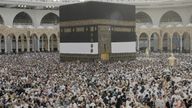
What is the Hajj? How long does it last? Who can take part?
Related Topics:
- Saudi Arabia
Please use Chrome browser for a more accessible video player

Dozens of deaths have been reported during this year's Hajj, with the AFP news agency putting the total at 550, citing diplomats.
Some 323 of the dead were Egyptians, most of whom perished due to heat related illness, AFP said.

A 2024 study by the Journal of Travel and Medicine found that rising global temperatures may outpace strategies to deal with the heat. A 2019 study by Geophysical Research Letters said that as temperatures rise in arid Saudi Arabia due to climate change, pilgrims performing Hajj will face "extreme danger".
A Saudi health official, speaking on Monday before many of the reports of deaths were issued, said authorities had not noticed any unusual fatalities among Muslim pilgrims amid the extremely high temperatures.
The ministry had so far treated more than 2,700 pilgrims who suffered from heat-related illness, he added.
Read more: 'An awesome, gargantuan sight'

What is the Hajj?
One of the largest mass gatherings in the world, the Hajj is a once-in-a-lifetime duty for able-bodied Muslims who can afford it.
Every year hundreds of thousands of Muslims journey to the city of Mecca in Saudi Arabia, the birthplace of the Prophet Muhammad and of the religion of Islam.

Keep up with all the latest news from the UK and around the world by following Sky News
Be the first to get Breaking News
Install the Sky News app for free

The Great Mosque of Mecca - Masjid al-Haram - is home to the Kaaba. It is Islam's holiest site and the direction in which Muslims all over the world face when they pray.
More than 1.8 million pilgrims were expected to take part this year, according to the Saudi General Authority for Statistics.
Related Topics
- Albalagh.net
- AnswersToFatawa
- Arij Canada
- Askimam.org
- Askmufti.co.za
- AskOurImam.com
- CouncilofUlama.co.za
- Darulfiqh.com
- Darulifta Azaadville
- Darulifta Deoband Waqf
- Darulifta-Deoband.com
- Daruliftaa.com
- DaruliftaaMW.com
- DaruliftaaZambia.com
- DarulIftaBirmingham
- Darulihsan.com
- DarulUloomTT.net
- Fatwa-TT.com
- Fatwa.org.au
- FatwaCentre.org
- HadithAnswers.com
- IslamicPortal.co.uk
- IslamicSolutions.org
- Jamia Binoria
- Mahmoodiyah
- Mathabah.org
- Muftionline.co.za
- Muftisays.com
- MuslimaCoaching.com
- Seekersguidance.org
- ShariahBoard.org
- Tafseer Raheemi
- TheMufti.com
- ZamzamAcademy.com
- BinBayyah.net
- Darul Iftaa Jordan
- Shafiifiqh.com
- HanbaliDisciples.com
- TheHanbaliMadhhab.com
- Ask Question
- Lailatul Qadr

Home » Hanafi Fiqh » CouncilofUlama.co.za » Travelling and Fasting in Ramadaan
Related Q&A
- Fasting whilst travelling
- Strong enough to fast when travelling; am I blameworthy? - (Hanbali Fiqh)
- Fasting during Ramadhan while travelling
- Travelling for Cricket and Ramadaan
- While travelling, fast becoming difficult and broke the fast, does the person have to just keep a qada fast or is there also some kaffarah?
- Sunnas & Makhrūhaats of Fasting
Travelling and Fasting in Ramadaan
Q: A person intends travelling during the course of the day and at the time of Subh Sadiq (when the fast commences) he is still in his hometown. Is it permissible for him not to fast?
A: It is compulsory for a person who is present in his hometown at the time of Subh Sadiq to fast. Since he only intends travelling during the course of the day the concession of not fasting does not apply to him. Hence, if he does not keep the fast he will be sinful. (Ahsanul Fataawa vol.4 pg. 447)
Answered by: Mufti Zakaria Makada Checked & Approved: Mufti Ebrahim Salejee (Isipingo Beach)
This answer was collected from CouncilofUlama.co.za , which is operated under the supervision of Council of Ulama Eastern Cape, South Africa .
Read answers with similar topics:
Random Q&A
Nafl salah in car, what to do with frozen 5-day-old viable embryos stored from ivf, those who are most caring to the creation of allah, i’ve been married for 12 yrs. if for some reasons, ive not been able to marry the person whom i love,and i am and will always love him only. according to what i’ve heard about, is it alright to let my children use their left hand to eat/drink, write, etc. how can i become an alima, teaching unveiled girls, more answers….
- Following Shafi in Second Sajdah in Surah Hajj
- Rules on the Eidgah
- Differentiating on Creed
- Scenario of Divorce
- Buying Business and Existing Contracts
- Taawuz for Hadith
Latest Q&A
- Is Makeup Allowed During Iḥrām?
- Do These Actions Formulate Disbelief?
- The Status of a Job Acquired with False Certification
- Can a Ḥanafī Resident Pray Behind a Shāfi’īe Traveller?
- Is it Permissible to Allow Wheelchairs in a Masjid?
- Is an Entry Fee at a Charity Event Considered Charity?
Indexed Websites
Privacy overview.
Health | Bowie husband and wife die on Hajj to Mecca…
Share this:.
- Click to share on Facebook (Opens in new window)
- Click to share on Twitter (Opens in new window)
Baltimore Sun eNewspaper
- Anne Arundel County
- Baltimore City
- Baltimore County
- Carroll County
- Harford County
Health | Bowie husband and wife die on Hajj to Mecca during heat wave

Alieu Wurie, 71, and Isatu Wurie, 65, were longtime Bowie residents originally from Sierra Leone. As passionate practicing Muslims, they had long planned on taking the religious pilgrimage to Mecca together, and, after divorcing in the early 2010s and reuniting last year, they finally went together this year.
Over 1,300 people have died during this summer’s Hajj amid the heat and crowds, according to The Associated Press. Daily high temperatures have ranged from 117 to 120 degrees during the pilgrimage.
The Hajj is the fifth and final pillar of Islam, according to the embassy of the kingdom of Saudi Arabia. Muslims are expected to fulfill each of the five pillars during their lifetimes. The other four are profession of faith, prayer, almsgiving and fasting during the holy month of Ramadan, according to the embassy.
The Wuries’ death notification stated that they died June 15 of natural causes, said their daughter, Saida Wurie, which she later learned likely meant heatstroke. In the last text Isatu Wurie sent to her daughter, she mentioned that she and Alieu had just walked for more than two hours in the heat.
Saida Wurie said her parents faced issues on the trip from the start. There were complications with the documentation, credentials and accommodations that she said her parents paid $11,500 each for and arranged with a travel agency. Certain meals, transportation and air-conditioned tents they expected were not provided, she said.
Around Monday morning, members of the roughly 80-person group the Wuries were doing the pilgrimage with reached out to the members of the Wurie family stateside. The couple hadn’t returned to their hotel for more than 24 hours and they were the only two missing from the group, Saida Wurie said.
Isatu and her daughter were sharing their locations on their phones, leading the group in Mecca to hope the family back in the United States could find the couple.

“We were calling the Ministry of Health; we were calling the embassy,” Saida Wurie said.
On Wednesday, the family received a call from a member of the group in Mecca. He said he’d gone to a few hospitals to find the Wuries. He told Saida he had found their names and passport numbers on a list of deceased persons, she said. Saida and her siblings soon learned her parents had already been buried, she said.
The Wuries had been aware of the heat and crowds often characteristic of Hajj, and they’d done what they could to gear up.
“Leading up to the days [of the trip], they were packing their Liquid IVs; they were thinking about those things,” Saida Wurie said. “They actually, months in advance, started walking miles in the neighborhood to prepare them for the trip.”
But experiencing that heat with those massive crowds, “I don’t think they were ready for,” Wurie said.
The Wurie children are heading to Saudi Arabia in the coming days to find their parents and retrieve their belongings. They have been in contact with the U.S. embassy in Saudi Arabia in hopes that diplomats can help them navigate a country and language with which they are unfamiliar.
Alieu and Isatu Wurie knew each other for most of their lives, as their mothers were friends. They married in 1983, divorced around 2013 and remarried in December 2023, their daughter said.
Alieu attended the University of Maryland, College Park briefly after the couple arrived in the states and soon decided to settle in Bowie in the 1980s. Isatu Wurie later attended Bowie State University.
“They loved the Lanham/Bowie area,” Wurie said. “This is where all their family and friends are.”

Isatu Wurie was deeply involved in the Muslim community in Bowie, said her daughter and Prince George’s County Councilmember Wala Blegay. Blegay credits her with opening her eyes to the challenges faced by the county’s sizable Muslim population and even helping her getting elected in 2022.
Blegay met with Isatu Wurie during her campaign for County Council.
“She made it clear that the Muslim community needed to be included more,” Blegay said. “She really broke down the needs.”
Wurie accompanied Blegay to mosques in the county and explained the challenges Muslim schoolchildren in Prince George’s face, such as their prayer requirements conflicting with school hours.
“I tried to be a voice [for the Muslim community] because of her,” Blegay said.
Isatu urged Blegay to lobby for a Muslim community center in Prince George’s County. Blegay said it’s something she’ll continue to advocate for.
Blegay said she reached out to Isatu last week to help out with an immigration clinic she was hosting. When she didn’t answer, Blegay knew something had happened.
The Wuries leave behind three children, Mohammed, 40; Alieu, 39; and Saida Wurie, 33; as well as four granddaughters, Sameera, 13; Aliyah, 12; Samiyah, 11; and Sariyah Wurie, 10.
Alieu Wurie primarily lived in Sierra Leone over the past few years and worked in the African nation’s education ministry, matching public schools with government funds, Saida said.
More than 1,300 people died during Hajj, many of them after walking in the scorching heat
Late last year, Isatu Wurie retired as a head nurse after a 30-year career at Kaiser Permanente.
“She was my best friend,” Saida Wurie said. “She took care of business; she made sure I was the same way. There’s nothing in this world that she couldn’t figure out.”
According to Saida Wurie, by the end of their lives, her parents had completed all five pillars of Islam.
“I’m very happy that they got to fulfill those dreams before they passed away,” Saida Wurie said. “I know that they died in such a holy land, and I know that they’re on to a better place and that one day I will see them again.”

More in Health

World News | More than 1,300 people died during Hajj, many of them after walking in the scorching heat

Local News | ‘Strong sisterhood’ brings Pasadena’s Ms. Wheelchair America, others with disabilities together in Baltimore

Health | This one thing may derail your shot at healthy aging, scientists say

FOX45: WalletHub study ranks Baltimore 126th best U.S. city out of 148

COMMENTS
1- If fasting and not fasting are the same, in the sense that fasting does not affect him, then in this case fasting is better, because of the following evidence: Fasting while traveling means that one fulfills one's duty more quickly, because making it up later means delaying it, but fasting in Ramadan means doing it sooner.
Travelling during the month of Ramadan is not forbidden. However, travelling to escape fasting is disapproved. Similarly, travelling in general in the month of Ramadan is disapproved except for ʿumrah[1] or because of necessity. Ruling 1685. If an assigned [i.e. time-specific] fast - other than the fast of the month of Ramadan - is ...
Asalam AleikumAnd Ramadan Mubarak. I would like to ask about fasting during travel. I will be travelling during Ramadan to see friends and family in a long haul trip from Canada to Pakistan. And will be changing trips and will be spending over 24hrs of travelling time. I am young and fit alhamd lil allah, but I wont be able to tell imsak and iftar in the air.
A. While you are on a journey and you have crossed the minimum distance of being a Musafir (traveller), the fast of Ramadhan will still be compulsory upon you, however, you will be given the allowance to delay it to a time when you have become a resident. When you leave your vicinity and you are about to cross a distance of 48 miles, then you ...
by Falah Gulzar March 12, 2024. Travelling during Ramadan? Harper's Bazaar Arabia answers all your questions here about what to do when flying or vacationing during the Holy Month. As Ramadan is here, Muslims worldwide are observing a month of fasting from sunrise to sunset. However, when taking a flight during this holy period, specific ...
If possible one should try to change their travel plans during Ramadan to be able to fast and should not travel unless it is necessary. The traveler who misses the fasts of Ramadan must make up those missed days later as soon as possible after Ramadan. Fasting According to the Sunnah. 1 - Take sahur (pre-dawn meal).
The last exception is travel: Muslims who are traveling during Ramadan can skip fasting if they travel for a good cause and if they travel at least 48 miles (80 km) away from their city of residence. Travelers have to make up the missed days after their travel. Ramadan Fasting in the Arctic. Muslims have to fast during daylight hours.
Fasting While Traveling. It is permissible not to fast when traveling, even when the intention to fast has been made the night before, provided that the journey is at least 81 km./50 mi one way and that one leaves town before dawn. If one leaves after dawn, one is not entitled to omit the fast (on that day). [Misri, ʿUmda Al-Salik]
Travelling during the month of Ramadan is not forbidden. However, travelling in order to escape fasting is disapproved. Similarly, travelling in general in the month of Ramadan is disapproved except for ʿumrah (1) or because of necessity. If you have further questions kindly contact us at (718) 297-6520 Ext 113 Monday to Saturday between 11 ...
Ramadan, a holy month of fasting in Islam, begins this weekend, and asks Muslims to give thanks to God for the sustenance the Earth provides. ... Travellers, elderly, sick, pregnant and ...
Dress modestly, which could mean different things depending on where you are. Clothing that covers shoulders and knees is recommended and, in some places, covering the legs entirely is more appropriate. Always avoid public displays of affection during Ramadan. Greet locals with phrases like "Ramadan Mubarak" and "Ramadan Kareem".
١٨٣. O believers! Fasting is prescribed for you—as it was for those before you 1 —so perhaps you will become mindful ˹of Allah˺. Read, study, and learn The Noble Quran. Quran.com is a Sadaqah Jariyah. We hope to make it easy for everyone to read, study, and learn The Noble Quran. The Noble Quran has many names including Al-Quran Al ...
During the entire month of Ramadan, Muslims are obligated to fast ( Arabic: صوم, sawm; Persian: روزہ, rozeh ), every day from dawn to sunset. Fasting requires the abstinence from sex, food, drinking, and smoking. Fasting the month of Ramadān was made obligatory ( wājib) during the month of Sha'ban, in the second year after the Muslims ...
Sawm. Sawm is fasting. It's the fourth of the Five Pillars of Islam. Muslims are required to fast during Ramadan, the ninth month of the Islamic calendar. During the 29/30 days of Ramadan all ...
According to Muslim Hands, this would roughly amount to £7 per missed fast. A pregnant or breastfeeding woman: The default ruling on pregnant women is that they are obliged to fast in Ramadan. However, if there is a danger to the health of the mother or unborn child, then of course they are exempted from fasting.
Muslims are not obligated to fast when travelling during Ramadan, including when flying. AFP. Many people continue to fast when flying and this is sometimes encouraged for shorter flights, but Muslims do not need to fast when travelling. If the thought of breaking your fast mid-flight concerns you or you are worried about knowing the right ...
6) Ensure you do not skip suhoor: This will help you keep your fast while travelling. I recommend you start your suhoor with one fruit, a cup of yoghurt or milk. 7) Make a small iftar pack: Some ...
In the month of Ramadan, Muslims enter a period of pious abstinence during the day, fasting from sunrise until sunset, and engage in fervent worship through the night. As a result, many Muslim ...
Janab Mufti Saheb ASAK. If we are travelling during RAMAZAN month (from one country to other country), will we make Roza as Qaza after Ramazan, aur it is Muaaf. wassalam. Answer. (Fatwa: 1435/1435/M=1431) No, it will not be exempted, it is necessary to make qaza of the missed fasts after the month of Ramadan. Allah (Subhana Wa Ta'ala) knows Best.
Ashura Messages and Wishes. Just the way God relieved the worries of many Prophets on this day, may He relieve you of your troubles too. May God reward you for loving His Prophet and the Prophet ...
Taking pictures or videos without people's permission is also a huge no-no. Just because you lose your clothes doesn't mean you should lose your manners. It's simply decent human conduct to ...
More than 1.83 million Muslims performed the Hajj in 2024, including more than 1.6 million from 22 countries, and around 222,000 Saudi citizens and residents, according to the Saudi Hajj authorities.
Make Dua (Supplication) Pray to Allah for guidance and support in helping your child observe fasting during Ramadan. Offer sincere supplications for their success and spiritual growth, trusting in ...
Hajj heat deaths: 500 Egyptian pilgrims perish in 124-degree temps. CAIRO − Egypt formed a crisis unit on Thursday to investigate the deaths of Egyptians taking part in the annual Muslim ...
More than 1.83 million Muslims performed the Hajj in 2024, including more than 1.6 million from 22 countries, and around 222,000 Saudi citizens and residents, according to the Saudi Hajj authorities.
Around 1.8 million Muslims were expected to travel to Saudi Arabia for the religious journey, where temperatures this year reached 51.8C in the shade. Wednesday 19 June 2024 11:19, UK.
Fasting is to avoid food, drink and sexual intercourse. A fast lasts from Fajr prayers start time to sunset. (Hindiyyah 194/1) Ramadhan. It is compulsory for all Muslims to fast during the month of Ramadhan except. Those who are travelling the sharee distance (48 miles), although it is preferable to fast if. (Hindiyyah 207/1)
A: It is compulsory for a person who is present in his hometown at the time of Subh Sadiq to fast. Since he only intends travelling during the course of the day the concession of not fasting does not apply to him. Hence, if he does not keep the fast he will be sinful. (Ahsanul Fataawa vol.4 pg. 447) This answer was collected from CouncilofUlama ...
Two new overnight routes connecting the city with Beijing and Shanghai entered into service on June 15. Both trains depart Hong Kong West Kowloon Station in the evening and arrive in Beijing at 6. ...
A Bowie couple with lifelong dreams to travel to Mecca for Hajj died June 15 in Saudi Arabia. ... prayer, almsgiving and fasting during the holy month of Ramadan, according to the embassy.